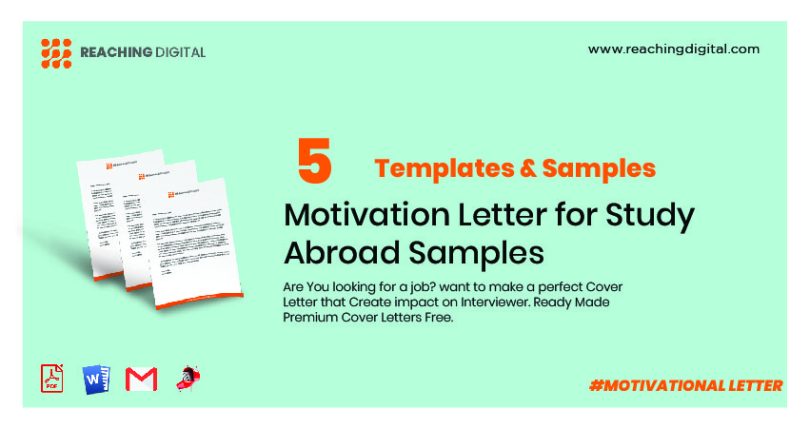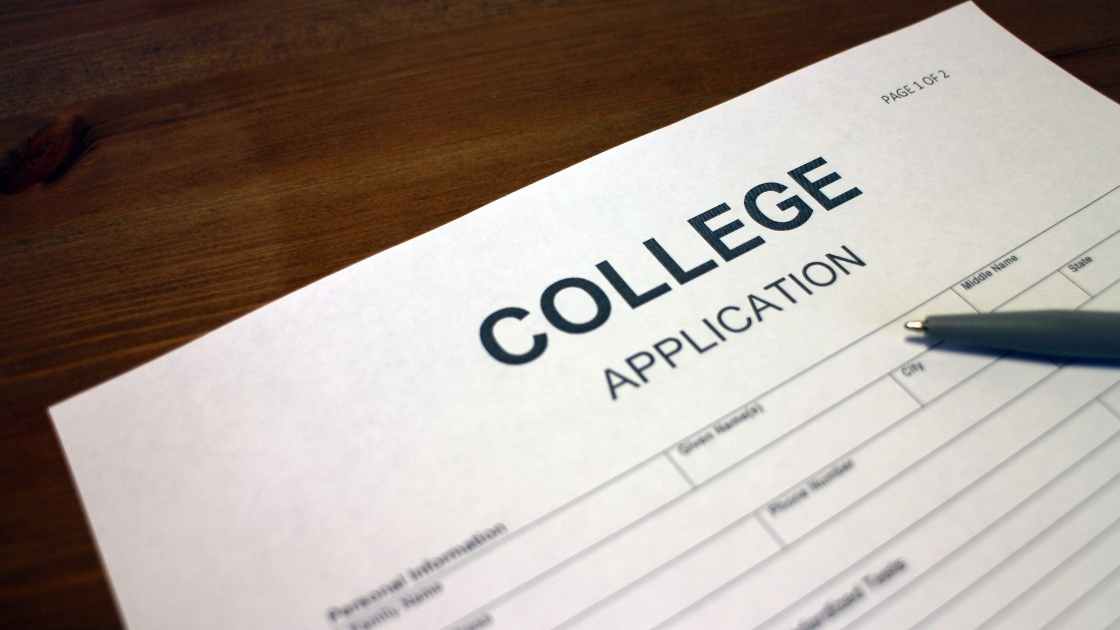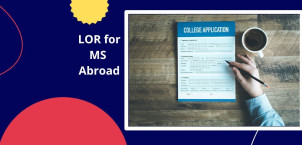- Terms And Conditions
- Privacy Policy
- Editorial Policy

Home » Motivation Letter for Study Abroad: 5 Samples

Motivation Letter for Study Abroad: 5 Samples

If you’re reading this, then you’re probably thinking about studying abroad. And if you’re thinking about studying abroad, then you’re probably wondering how to write a motivation letter for study abroad. don’t worry, we’ve got you covered!
A motivation letter for study abroad is basically a cover letter for your application. It should introduce you and explain why you’re the perfect candidate for the program. It should be concise, well-written, and positive.
There are a few things to keep in mind when writing a motivation letter for study abroad. First, make sure to do your research! Know the requirements of the program and what they’re looking for in an applicant. Second, be yourself! The admissions committee wants to get to know you, so don’t try to be someone you’re not. Third, stay positive! This is your chance to sell yourself, so focus on your best qualities and attributes.
Now that you know what a motivation letter for study abroad is and how to write one, it’s time to start working on yours! Good luck!
Table of Contents
How To Write Motivation Letter for Study Abroad?
One of the most important steps in applying to a study abroad program is writing a motivation letter. This letter is your chance to sell yourself to the admissions committee and explain why you are the ideal candidate for the program. While there is no one-size-fits-all template for a motivation letter.
There are a few key things to remember when you sit down to write your motivation letter for study abroad. First, focus on why you want to study abroad and what you hope to gain from the experience. Second, be specific about your plans and what you hope to accomplish. Third, be realistic about your expectations and don’t over-promise. Finally, make sure to proofread your letter carefully before hitting send. By following these simple tips, you can be sure that your motivation letter will make a strong impression on the admissions committee and help you get one step closer to your dream of studying abroad.
Related: How To Write a Cover Letter (And Get Hired in 2022!)

Motivation Letter for Study Abroad
Dear Scholarship Committee,
I am writing to apply for the study abroad scholarship. This opportunity has always been a dream of mine, and I am excited to finally have the chance to make it a reality.
I believe that studying abroad will be an incredibly enriching experience. I will be able to learn about new cultures and perspectives, and gain a more global perspective. This will be an invaluable experience, both academically and personally.
I am confident that I will make the most of this opportunity, and am eager to learn as much as possible. I am committed to making the most of this once-in-a-lifetime experience, and believe that it will be a truly transformative experience.
Thank you for your consideration, and tI look forward to hearing from you.
Sincerely, Your name
Related: 5+ Catchy Dentist Cover Letter Samples
Study abroad letter of intent example
My name is ____________ and I am a sophomore at ___________ University. So, I am writing to apply for the ___________ scholarship to study abroad in ___________ during the fall semester of my junior year.
So, I have been interested in ______ for many years and am very excited to have the opportunity to study there .And I believe that studying abroad will give me a unique perspective on ___________ culture and history.Also, I am confident that I will be able to use what I learn during my time abroad to make a positive impact on my community when I return home.
I am committed to making the most of this opportunity and am confident that I will represent ___________ well. So, I would be grateful for your consideration and look forward to hearing from you.
Sincerely, ____________
Related: Creative Motivational Letter for Learnership [7 Samples]
Motivation letter for exchange program Erasmus
Respected Sir or Madam,
I am writing this letter to apply for the Erasmus exchange program at your esteemed university.
I am a third-year student of economics and I believe that studying at a renowned university such as yours would be a great opportunity for me to gain new knowledge and broaden my horizons.
Apart from academic excellence, I am also interested in the cultural aspects of your country and I believe that an exchange program would be the perfect way for me to experience these.
I am confident that I would be a valuable asset to your university and I am eager to learn more about European culture and economics. I am committed to making the most of this opportunity and I am confident that I will be an excellent ambassador for your institution.
Thank you for your time and consideration and I look forward to hearing from you soon.
Related: Motivational letter for university: 12 Examples & Sample Included
Motivational letter for exchange program
Dear Last NAME,
I am writing this letter to apply for the exchange program at your school. Also, I am very excited about the possibility of spending a semester in Another country and feel that I would be an excellent candidate for the program.
Also, I am currently a sophomore at My home university, where I am studying International Relations and Economics. I have always been interested in other cultures and am passionate about learning more about the world. I believe that this exchange program would be the perfect opportunity for me to do so.
In addition to my academic interests, I am also very active in extracurricular activities. I am a member of the student government and have been involved in several community service projects. And I am confident that I would be an asset to your school and would take full advantage of all that the exchange program has to offer.
I am eager to learn more about Another country and its culture and believe that I would be a great ambassador for My home country. So, I am confident that I would make the most of this unique opportunity and am grateful for your consideration.
Motivation letter for admission in foreign university
Respected Madam/Sir,
I am writing to express my interest in studying at your esteemed university. Also, I am immensely motivated to pursue higher education in ____________________ (name of the country) as it is one of the leading academic destinations in the world. I have been following the work of ___________________ (name of the university) with great interest and I am confident that I can make valuable contributions to the university community.
Also, I have _____ years of experience in the field of ___________ (subject related to the course you are applying for). My work has given me a deep understanding of the ____________________ (course you are applying for) and I am confident that I can excel in it. And I am also proficient in ___________ (language) which will be helpful as ___________ (name of the country) is a ___________ (language) speaking nation.
I am confident that I can be an asset to your university and I would be grateful if you could consider my application for admission. So, I look forward to hearing from you.
Related: 07 Professional MBA Cover Letter Samples [Free]
5 Things To Include Motivation Letter for Study Abroad
Getting accepted into your dream school is no easy feat. Now that you’ve been accepted, it’s time to start planning for your future! One of the first steps is to write a motivation letter for study abroad. Here are five things to include:
- Explain why you want to study abroad. What are your academic goals? Why do you think the program you’ve chosen is the best fit for you?
- Describe your previous academic experiences. If you have relevant work experience, mention that as well!
- Highlight any extracurricular activities or volunteer work you’ve done. What leadership roles have you held? What skills have you acquired through these experiences?
- Discuss your plans for after graduation. What do you hope to accomplish with your degree? How will studying abroad help you achieve these goals?
- Finally, be sure to proofread your letter and edit for grammar before sending it off! A well-written motivation letter will demonstrate your dedication to and excitement for the program, and increase your chances of being accepted.
By including these 5 elements in your motivation letter, you will give the admissions committee a well-rounded picture of who you are and why you would be a valuable addition to their program.
Related: What is Cover Letter? Complete Guide To Get any Job.
I hope you found this blog helpful as you consider your options for study abroad. The program I chose is very challenging and rewarding; it has already changed my life in so many ways. As someone who was once unsure about whether or not to study abroad, let me reassure you that the experience is absolutely worth it. It’s an amazing opportunity to learn more about yourself while also experiencing a new culture. If you have any questions, please don’t hesitate to reach out to me. We’re happy to help in whatever way we can!

You may also like
The benefits of a motivational letter: examples and....

Motivation Letter For PHD In Electrical Engineering:...

Motivation Letter For PHD In Environmental Sciences:...

Motivational Letter For PHD In Civil Engineering : 7+...

Motivational Letter For PHD In Mechanical Engineering...

Motivation Letter For PHD In Anthropology: 7+ [Free...
About the author.
Jessica William
Leave a comment x.
Save my name, email, and website in this browser for the next time I comment.
How to Write a Letter of Intent for Studying Abroad
If you want to study abroad, many programs require an official application and letter of intent.
This is usually a one-page letter that unveils reason you wish to study in a different country and what is your aim of this opportunity. An appropriately written and convincing motivation letter can help begin a new exciting journey.
If you are wondering how you can make a strong introductory letter for studying abroad check out our tips and example letter.
1. Is This Oppportunity for You?
Before applying, you need to research all opportunities to see if this experience is right for you. Sometimes the idea of going to study abroad can seem exotic but it might not be beneficial to you or your studies. You will need to also find the right course / study abroad destination to match your interests.
2. What is a Study Abroad Application
A normal application and letter of intent for studying abroad will usually just look like a normal college application form. Make sure you include key sections like a personal statement, potential colleges/courses/destinations and also general information about yourself. You should also try to include anything to support your application for example letters of recommendation.
3. General Information Section
Usually you will need to complete a generic form including information about yourself e.g. name, address, age, study location, courses, emergency contacts etc.
4. Health Clearance Forms
If you are applying to study abroad from the USA you will usually need to get medical complete with a doctor who will be able to confirm you are okay to go overseas. He will also be able to check you have all the necessary vaccinations. Try to get this done as soon as possible and don't leave it till the last minute.
5. Course Selections
You will need include your potential course selections on any application so you can be matched to the right destination. See what appeals to you or what you think would be interesting and beneficial to your studies.
6. Letters of Recommendation
Some agencies and overseas instutions sometimes require study abroad applicants to include letters of recommendation. This can be personal or professional and so you will need to ask them e.g. your teachers to see if they would be able to write a letter recommending you for this experience.
7. Letter of Intent
The letter doesn't have to be complex or long, it just needs to be to the point and address a few key issues.
To start with, you need to have an idea of who you are addressing the letter to, and also why you want to jump at the experience of studying abroad. The person who is going to read your application has probably read hundreds of previous letters and so you should try to make it sound as fun/interesting as possible. Try to divide your application into small paragraphs rather than a big block of text. Each passage should be relevant to the topic and be to the point.
Provide the reader with a sense of your personality. Give some details about your life and be honest about you aim and reasons regarding studying abroad. If your deepest passion is traveling, for instance, then note it. Describe your interests and your excitement in some activities that correlate with the program in question.
8. Example Study Abroad Letter of Intent
This is a example for how your letter of intent should be structured:
- My name is @ and I am very keen on studying abroad...
- I currently study @
- At my current college I ...
- I am very interested in @ and integrating into the local culture
- I am an outgoing person who is ideal for this opportunity
- I am very open to the idea of living abroad, I really enjoy to travel and meet new people
- This experience would give me a chance to...
- I would be very keen to experience a different culture
- The courses offered by @ sound perfect for me to develop and learn
- I look forward to hearing from you
- Yours sincerly, name
9. Before Sending
Before sending make sure you check for any errors in spelling, grammar and try to use clear-cut language.
Most application and letters of intent for studying abroad are only one page in length so there is not need to go overboard with information.
If you feel you are having difficulties with the application and structure of the text, there are online services, which can help you to cope with documentation. Some websites help students all over the world by offering advice and assistance for finishing academic projects on time.
Proofreading is also necessary and this is important to make sure you application makes sense. Ask your parents, teachers, friends, whoever it may be, to go over your application. It is always good to get someone with fresh/different perspective to have a look.
Related Pages
- Study Abroad in Africa
- Study Abroad in Asia
- Study Abroad in Europe
- Study Abroad in Central America
- Study Abroad in South America
- Study Abroad in North America
- Study Abroad in Australasia
- Study Abroad in Middle East
- Leave a reply
Provide feedback, share your experience and submit your comment.
Related Articles
10 tips for studying in the united states.
If you’re interested in the idea of going to study in the United States, or have already applied, these 10 tips for...
Study Abroad in Canada
Thousands of people from all around the world choose to study in Canada every year and it is easy to see why. There are ...
Study Abroad in Australia
Interested in going to study in Australia? Check out our guide which includes information about popular destinations,...
Do You Need a Visa to Study in Spain?
Are you wondering if you need to obtain a visa to study in Spain? Is it possible to work in Spain as an international st...
Study Abroad in New Zealand
New Zealand is an incredible place to study abroad - the education, social, culture and adventures available are endl...
How to Write an Award Winning Study Abroad Scholarship Essay
If your desire to study abroad is very strong you shouldn't let anything hold you back.
Writing Your Motivation Letter for Studies Abroad
When required, the motivation letter can seem like a challenge for applying to a school. However, the good news is that there are some general characteristics international higher education recruiters are looking for when considering potential new, international students.
- Applying to Study Abroad

When required, the motivation letter, or the letter of intent, as it is sometimes called, can seem like an unnecessary challenge for applying to a school. Depending on whether the program faculty provides specific details of what they are looking for in the letter or, as is more frequently the case, if they have left it up to the prospective student, it is important to recognize that either way it comes with its own advantage and disadvantage.
Too specific, and you may miss out on a chance to demonstrate your creativity, but too open-ended and you risk going in the opposite direction of what the staff is looking for. Therefore, many students express not knowing what exactly it is they are supposed to write about.
Adding to the stress, students who wish to study abroad have additional concerns about writing effectively for an international audience.
However, the good news is that there are some general characteristics international higher education recruiters are looking for when considering potential new, international students.
Along with some common points that should be made no matter where you are sending your motivation letter (qualifications, goals, interests/passions related to your studies), there are also some important details to add when applying to schools abroad.
Why Do You Want to Study Abroad?

Of course, the first question you should be prepared to explain is the reason why you want to study abroad and not in your home country. It may seem obvious, but your reasons for studying abroad make a big difference to universities.
- I just wanted to get out of my country.
- I want to meet and marry someone “international.”
- My friend tried it, and it sounded fun.
Instead, Say:
- I anticipate developing both personally and professionally from an international experience.
- I have a deep interest in the culture, history, and language of the country, which I am excited to continue to explore and experience.
- As someone who prides themselves on their ability to communicate across cultures, I believe I would be the perfect fit for a program that incorporates students from around the globe.
By showing universities that you have taken your choice to study abroad seriously, you also show them that you are ready to take your education seriously.
Do You Have Any Experience Abroad Already?

When selecting international students, most recruiters are aware that it is not the right experience for everyone. By selecting someone who has no experience being far from home, universities run the risk of selecting someone who is not ready to live abroad and may quit the program soon after it begins.
- I have never travelled or lived abroad, but I think I will like it.
- Every time I have travelled it was a bad experience, but I’m hoping this time will be different.
- Although I have never lived or studied abroad before, I love to travel and experience new cultures, and therefore, I’m looking for an opportunity to expand my horizons while doing something I love.
- Although I have never been abroad, I have done a lot of research to make sure this country is the right match for me. I also look forward to the challenge of living and studying independently abroad, which I am sure I am ready to handle.
Universities don’t expect that everyone applying to an international program has had study abroad experience before. However, by letting them know you are up for the challenges that may arise, you set yourself apart from other students who may choose to ignore the subject entirely.
Free Motivation Letter TemplateDownload Your Copy Now! 😎
Get a head-start on your motivation letter with our Word Doc template.It's easy, efficient, and best of all, FREE!
Why is Your Personality Conducive to Study Abroad?

Naturally, some people are better suited for the experience of living and studying abroad. However, it may be for different reasons than you think.
- I’m always the life of the party or the loudest in the room, so I know I will make friends easily.
- I plan on keeping to myself so that I will not upset or offend anyone.
- I am the kind of person who gets along well with others due to being open and considerate of people and their beliefs.
- Above all else, I pride myself on my cultural sensitivity when I find myself in the company of others who do not share a similar background as mine.
Chances are that you will not be the only international student in your program. Therefore, it’s important to demonstrate that you get along well with others. Note that this is not the same as saying you are the most social or friendly. Whether you are intro- or extroverted, recruiters just want to know you are capable of maturely handling multicultural interactions.
That being said, with these improvements to your motivation letter, you are increasing your chances of getting noticed by international universities.
So, now that your study abroad essay is complete, it's time to start thinking about where it is you want to go! Whether you want to study under the Eiffel Tower in Paris , next to Big Ben in London , or you're still not sure, we're here to help!
Get a head-start on your motivation letter with this Word Doc template.It's easy, efficient, and best of all, FREE! 👇

Keystone Team Author
The Keystone Team is comprised of experienced educators and advisors dedicated to providing valuable resources and advice to students all over the world.
Read related articles

Tips for Studying Abroad in the Netherlands
March 2018 Study Abroad in the Netherlands Study Abroad in Europe Applying to Study Abroad During Study Abroad Deciding Where to Study

What Americans Need to Know to Study Abroad
March 2018 Information for American Students Preparing to Study Abroad Applying to Study Abroad Study Abroad Financing

How to Get into Medical School in Australia
June 2020 Study Abroad in Australia Study Abroad in Oceania Applying to Study Abroad Health Sciences
Motivation Letter / Statement of Purpose
Learn how to persuade the admissions team at the university to give you a place by using your personal statement.
- Types of content that should be included in your motivation letter
- How to format a personal statement for university
- 5 Tips to make your personal statement more interesting
- Mistakes to avoid when writing your personal statement
- Samples of university personal statements
- Difference between personal statement, cover letter and motivation letter
A Guide For Writing an Effective Personal Statement For University Admissions
When making your applications to your universities and colleges of choice, writing your academic personal statement is the first opportunity that you have to show your personality, to get across what motivates you, and ultimately to clarify why the admissions staff at your chosen university should accept you on the course you want.
Here you will find recommendations and advice on structure, content, as well as what mistakes to avoid when creating your personal statement for university or college.
Keep in mind that if you are applying to UK universities through UCAS you can only write one statement even if you apply to five different courses.

Types of Content That Should Be Included in Your Motivation Letter
Most probably you know that you would be an excellent addition to any university, but we often freeze when we’re put in a situation where we have to explain the reason why. Writing about ourselves is not something most of us do under normal circumstances, so getting some practice before you sit down to write your first draft of your personal statement can help you organise the topics you want to speak about in your mind.

Below you will find two planning tables to help you quickly and easily clarify what kind of skills and information about yourself you should include in your motivation letter for university.
Consider sharing some information about how you arrived at this point in your academic life. What exactly makes you passionate about the course you’re applying for compared to any other course?
What challenges have you faced and overcome? This doesn’t have to be a dramatic example, but you can feel free to describe experiences such as conquering your fear of public speaking, being the only person in your family to go to university, and other ordinary situations. This is your chance to show off some of your virtues, such as how determined and hard-working you are when you have a goal.
Motivation Letter Content Planning Table
Using this table you can start to create a vision for what you want to speak about, and what story you want to tell the reader.
Around two thirds of your personal statement should consist of the information that you use to answer these questions, and to do that you have to be aware of the character limit that has been established for your statement. In the case of UCAS’ personal statement, this is set at 4,000 characters (between 570 and 1000 words).
The remaining third of the personal statement should be about yourself and why you believe you’re a good fit for the course that you are applying for, with this being focused on what would make you a valuable addition to the university. You should only include information that directly supports your case for studying at your chosen university , rather than talking about the dreams that you’ve had since you were a small child. The golden rule is that the more recent the information, the better , because Admissions Selectors want to know about the person you are today.
Filling out the table below and having it with you as you write your personal statement can help you remember to include the qualities that you possess.
Brainstorming For Skills to Include in a Personal Statement
As always, all information that you choose to include should build upon the narrative of why the university should select you for the specific course you are applying for . This can be easy to forget while you’re expanding on your talking points.
Even though there are no rules written in stone about how to write a successful university application, you now have the information you need to get started with creating a unique and impactful personal statement that demonstrates to your chosen university why you should be accepted as a student.
Writing a personal statement that truly manages to make the author stand out from the crowd is a process that can take days or even weeks to finalise, while you get feedback from your teachers, friends and family. For this reason, start drafting your personal statement today and you’ll see that all you have to do is be yourself and present yourself in a way that is honest, authentic and enthusiastic.
Hopefully, your mind is buzzing with ideas of what you’d like to speak about in your motivation letter – just make sure you follow the etiquette of how to present everything before you get started!
How to Format a Personal Statement For University
One of the main decisions you need to make about how to present your statement is how many paragraphs should be used. While there are no absolute rules about what admission staff will like, it is generally accepted that between five and seven paragraphs with a maximum of 500 words is the best approach . The reason for this is that you have to touch on a variety of topics, and separating them in this way allows you to organise them logically and make your point effectively.
You should speak in the past-tense when sharing your story of how you got to where you are today as a student and individual. Towards the end of your personal statement, you can change to the present-tense to give the reader a sense of narrative and purpose.
For example:
- “During my work experience placement, I had the opportunity to…”
- “From time to time, I volunteer as…”

Again, although there are no rules with how you should write, there are some formats that are reliable and have survived the test of time. One example of a format that helps applicants write clear and concise statements is the following template:
- Start by explaining why you have chosen this course , and very briefly let them know a little about your background. Keep it simple!
- Demonstrate to the reader what you know about the subject by mentioning current developments or important research topics, and how they impact areas of society in a broader way. Universities are not just looking for people who can keep up with the news, but people who show vision and enthusiasm. Be sure to check out the downloadable prospectus that your preferred universities offer, to make sure you have really understood what is being offered.
- Now is the time to speak about any extracurricular activities or experiences outside of academia that are relevant to the course you are applying for. If your experiences don’t directly relate to the subject, you can try to explain how the skills that you developed during these experiences will be meaningful in the context of your university course. With that said, be careful not to exaggerate here, as you may later have to answer questions about anything you include.
- Conclude your statement in a professional and formal tone by thanking the reader for their time, and expressing your eagerness to start university in the near future.
What to Keep in Mind When Writing Your Personal Statement

The way you write your personal statement gives the admissions committee an instant impression of how much care and attention you are capable of while producing an important piece of work, and for that reason we want to give the best first impression possible.
It’s important to remember that the university is not trying to trick you when they ask you to tell them about yourself . They don’t know you, and they would like to know more about what you do with your time, and where you would like to go in life.
Focus on common themes that your courses of interest share, and avoid including the specific course or university names in order to keep it general . Those students who are applying through UCAS can find information on important deadlines here .
With everything in the right place in your motivation letter, the next task is to learn how to make your motivation letter as interesting as possible, as well as avoid some of the common pitfalls and mistakes.
5 Tips to Make Your Personal Statement More Interesting
Maybe you already know what type of content you want to include in your personal statement, and you just need a little help with how to structure everything. The following suggestions are a good place to start:
- An introduction that immediately stands out from other applicants. It’s important to appreciate that the people who read university applications have seen a lot of the same thing, so this is your chance to be different and grab the reader’s attention. This does not mean trying to be as unorthodox as possible, but just show your personality and don’t try to impress the reader.

- What your goals are and how the selected course will help you achieve them . To make sure that you give university tutors the impression that you fully understand what their courses are about, you should do some of your own research by reading the university’s prospectus. These can usually be downloaded from their official website, and often include external links intended to help the applicant understand the approach of a particular course.
- Why you have a passion for your chosen subject. Throughout your application, you should show how passionate you are about the subject in question. Was there an event in your life that made you pursue the path that you’re on? Let them know about it!
- Show ways that you have immersed yourself in the subject outside of the classroom. Admission tutors are looking for evidence that your interest in your subject continues even when your classes are finished for the day. A simple but effective way to speak about this is highlighting the books you have read on the subject, or workshops and seminars you have attended in your own time.
- Your participation in clubs or societies . This does not need to be strictly related to the courses you are applying for, as admission committees value your intellectual and creative ability to relate your experiences to your subject of choice.
Consider focusing on topics such as public speaking, staying organised, and the discipline and perseverance required to excel in a sport. Speaking about your experiences in this way will communicate that you are a person that pursues their goals earnestly.
Common Mistakes to Avoid When Writing Your Personal Statement
Writing a personal statement is a process that can take time, and it would be a shame to commit the simple and avoidable mistakes that some students make. In this list you’ll find some of the most common errors when it comes to personal statements.

- Avoid using your application as a chance to show how many sophisticated words you know . This is likely to be distracting from the overall point of what you’re trying to convey.
- UCAS and other organisations all use software designed to detect plagiarism , which easily detects when applicants use parts of their colleagues’ personal statements. Writing your own application is important, because you can be asked unexpected questions later during your interview.
- Related to the previous point: always tell the truth!
- Try to resist the temptation to procrastinate with getting started on your statement , as this is another common mistake that applicants make. This will be a process of writing multiple drafts, and getting your friends and family to proofread for you, and these things can take longer than you expect to get done.
- Humour and quotes are usually inappropriate . This doesn’t mean that you have to take an overly serious tone, but you simply never know whether the member of staff reading your personal statement shares your sense of humour. In the case of quotes, this is considered a cliché writing technique by most admissions officers, and if you do choose to use one then there should be a clear reason to justify it.
In the next section you will find some explanations from tutors at Oxford, Greenwich and Bangor University on their typical reasons why they might reject an application.

There are many potential reasons why admission staff might consider that an applicant isn’t suitable for the requested course, and the following are some of the points of view that tutors expressed when asked to describe their usual reasons for rejecting a personal statement: “I work at Bangor University, and I couldn’t tell you how many times I’ve been reading personal statements and I see a sentence mentioning the name of a completely different university or course than the one the student is applying for. This makes a bad impression because it shows that the student hasn’t really planned their application properly, and this qualifies as an instant rejection for me.”
“Something I personally find off putting in their personal statement for Media Studies is when the student talks too much about their Dad who owns a radio station, or their Auntie who is a journalist. Not only is this irrelevant for us, but it gives the impression that the applicant is trying to look good based on the achievements of their family . I only want to know about the applicant and what motivates them.”
From these professionals’ perspectives we can see that a light, authentic and concise style is preferred . Even with their helpful points of view, you can benefit from checking out some visual examples of university personal statements.
Samples of University Personal Statements
Examining a diverse variety of university personal statements can help you get a sense of which tone and style you would like to use in your own statement , as well as the opportunity to observe some of the shortcomings or mistakes that have been made by others so that you can avoid making them yourself.
Below you can find two examples of personal statements from students, and a brief summary of their strengths and weaknesses. Also you can check out this enlightening two minute video from a Dartmouth Former Admissions Reader to learn what admissions officers look for in college applications.
Personal statement from a biochemistry student :
“When I was eleven years old, my father was involved in a road accident with a lorry. His injuries were quite serious, and he was only able to recover after receiving a blood transfusion. Ever since then, I’ve had the goal of working in transfusion science myself, to do for other families what those professionals did for mine. As I’ve had the privilege of knowing what I wanted to do with my life from an early age, I’ve been able to do extensive research into the skill set that these kinds of scientists must have. I consider myself an efficient and focused person, which are critical attributes when it comes to being responsible for patients’ lives. I feel that I am academically prepared to take the next step on this career path due to my deliberate A-level choices in Biology, Chemistry, Psychology and Maths.
Due to studying both biology and chemistry, I’ve been able to develop laboratory skills that will serve as a good foundation for more advanced techniques at the university level. Maths has improved my ability to interpret numerical information logically, while Psychology has given me the chance to improve my writing skills.
During my time at school, I have always taken on positions of additional responsibility. I was elected as the form captain twice, and also Head Girl in my last year. This position was a challenge, because it was my job to represent my school at important events, but it was this challenge which sharpened my public speaking skills. I’ve received prizes for both biology and maths, and I was also awarded the Stubbs Cup, which I consider one of my main achievements.
In my spare time I go for long walks in the countryside with my two dogs, which are energetic huskies. Taking care of all their needs by myself requires discipline, since they are such a demanding breed. I also use this time to socialise with other people who are out with their animals, as I love to meet new faces. One of the reasons I’m excited about university is for the chance to meet so many new people.
Apart from that I also like to lift weights in the gym, because I find that keeping healthy makes me more motivated for other areas of my life. The gym I attend has a service that looks after clients’ children while they work out, and I recently started working there because I love working with children. In order to work here, I had to earn my first aid certificate.
I think that a career as a biomedical scientist would be an enriching and satisfying career for me because it’s a job that both improves and saves lives. Taking the next step to university has been my main aspiration for a long time, and I look forward to the challenges that it will bring.”

Personal statement from a drama student :
“From an early age I have always been fascinated by the stage. For me it’s much more than entertainment, as I believe that a well-produced drama production can make an emotional impact on an audience. My main involvement with the craft has been through acting, however I’m also very interested in learning other aspects of theatre such as lighting and set design in a university setting.
For my GCSE Drama final production, a group of us produced a play based on a short story by A.L. Kennedy. Because there were only six of us in the group, we shared a lot of responsibility. I played one of the main characters and was also in charge of obtaining the props we needed. These tasks were enjoyable but the most challenging part of the production was to adapt the story for the stage, and produce a script as close to the original story as possible. This was a demanding but enjoyable job and really opened my eyes to the complexity of adapting stories to the stage.
As well as Theatre Studies, my other AS-levels are in English Literature, Sociology, and Biology. In English Literature we have just completed a module on plays in which we studied Death of a Salesman by Arthur Miller and Shakespear’s Henry V. I go to the theatre as often as I can, and have seen many amateur and professional productions. My favourite playwright is Willy Russell. I think all his plays provide an interesting social commentary, and successfully blend comedy and tragedy. I have seen many musicals, but Blood Brothers is by far my favourite; I have now seen it four times! I am looking forward to discovering more playwrights while at university.
My interest in drama and the theatre takes up a lot of my social life. I have taken part in all my school’s productions and am also involved in a local drama group ‘The Bournemouth and Boscombe Light Operatic Club’ – BBLOC for short. Every year we hold a major production, the most recent being Oh What a Lovely War. I value the experience of being part of this group as I get to work with people of all different ages. I also have a part-time job in a local Beefeater restaurant. This job has taught me the value of being able to work as part of a team, and I think helps me improve my performance within BBLOC and at school, as good teamwork is crucial to a successful production. I am looking forward to joining a drama society at university, and also possibly a film society, as cinema and film are another of my passions. I feel I have a lot to contribute to university life and hope you will consider me for a place at your university.”

If you have made it this far then you now have a plan of attack for how to make an outstanding motivation letter – well done! Click here for tips on how to structure a strong academic CV and how to request notable letters of recommendation .
Frequently Asked Questions About Motivation Letters
What is the difference between a personal statement and a motivation letter.
The two terms are often used interchangeably, but if we want to get specific about it then in reality a motivation letter invites the writer to speak about the academic or work position they are applying for will be a crucial step in their career or personal development.
A personal statement’s content is more likely to be oriented in the past, describing the activities and achievements that have brought you to where you are today.
In other words, very similar information appears on both documents, but the story that you’re expected to tell with that information is where the difference lies.
What is the difference between a cover letter and a motivation letter?
A cover letter is usually used in the context of applying for a job position, with the intention of demonstrating how the experiences that you’ve had and the skills you’ve developed make you the perfect candidate.
Motivation letters are generally used for describing to the reader where you want to go in the future, and how that would become a real possibility by becoming a part of their organisation.
What should I write in a motivation letter?
The answer to this depends on what type of organisation you want to apply to, because the content and style can change significantly depending on the context. Just a few different scenarios that would change the delivery of your motivation letter might include:
- Student exchange programmes
- Internship positions
- Scholarships
- Job selection processes
- Undergraduate education
- Graduate education
The post above is intended to help anybody drafting their motivation letter in an academic context .
Craig Plunkett
Fabiola López Marín
Related articles.

Letter of Recommendation / Reference

Resume/ Academic CV for Students Studying Abroad

Student Accommodation Guide

UCAS Guide For International Students
- Admissions Advice
Writing a Motivation Letter for Studies Abroad in 5 Steps
Are you interested in studying in another country? Have questions about how to apply? Worried about applying as an international student? Fear not—in this EDUopinions article we will discuss how to write a perfect motivation letter for studies abroad. Even better, there are only five steps you need to follow. Keep reading to find out!
What is a motivation letter?

First things first, a motivation letter is a fairly common component of many types of applications . Essentially, it is a way for whoever assesses your application to understand why you are applying to the programme/position, why you are qualified and what you aim to get out of the experience. A common mistake in writing motivation letters is being overly lengthy and overly personal. This is not to say that your motivation should lack details; rather, you should aim to be as specific and concise as possible in your motivation letter.
How different is a motivation letter for studies abroad?
As mentioned above, motivation letters are used for job applications as well as university applications, and in each country, there are slightly different expectations of what should be included in one. A motivation letter for studies abroad should aim to demonstrate the above points in addition to why you are interested in studying in another country and how you are prepared to do so. International students are expected to include these extra details, making their application process a bit more involved, but by no means impossible. Take a look at the Erasmus application for an example of what to expect.
EDUopinions’ 5 tips for a motivation letter for studies abroad:
Introducing yourself.

First, your motivation letter for studies abroad should start with you introducing yourself . This introduction should include basic information like your current occupation/degree and where you are from. In addition, you should clearly state the programme you are applying for and what motivated you to apply. The introduction does not have to begin with a ‘hook’ but it should formally and clearly tell the admissions officer who you are, what you are applying for and why.
Demonstrating your qualifications

Another essential component of a motivation letter for studies abroad is clearly explaining how you are prepared to take on the challenge of studying in another country . What sort of language and culture classes have you taken? Why is the programme you are applying to the right one for you? Most likely, you will have to submit your transcript and resumé or CV, so be sure to emphasise qualifications not included in those documents. Try to succinctly and convincingly explain how well prepared you are for studies abroad.
Mentioning your previous international experiences

In addition to sharing your academic, work and/or volunteer experiences, your motivation letter for studies abroad should include any previous international experiences you have had. These do not necessarily have to be formal academic programmes but could experience travelling with family or friends. The most important thing about this step is to let the person who reads your application know that you understand what you are getting yourself into. Of course, many people may not have had an international experience yet, and that is totally fine. If that is the case for you, then use this opportunity to explain your motivations for going abroad.
Describing your personality

Next, it can be helpful to briefly describe your personality in your motivation letter for studies abroad. Now, this does not mean you should list all of your personal characteristics, like/dislikes or favourite TV shows. Instead, you should explain how your personality is well-suited to being in an international context. For example, if you are a person who makes friends quickly, you could say something along the lines of, “I consider myself an open-minded and friendly person, which has helped me make friends quickly in many different situations.” Notice how this type of writing incorporates adjectives to specifically describe a person’s personality. Doing so will help whoever reads your application get a clear idea of the person you are.
Explaining how studying abroad will help you grow

Finally, and maybe most importantly, any good motivation letter for studies abroad should explain what you aim to get out of the programme . International exchanges and study abroad programmes are designed to help students learn about a different culture, language, society and way of living. Admissions officers want to know that you plan to make the most of your international experience and that you set goals to help yourself grow along the way. Maybe you want to perfect your foreign language skills; maybe you want to learn about another culture’s approach to education; or maybe you are keen on experiencing the culinary traditions of another country. Whatever your hopes and goals are, your motivation letter is the perfect place to write about them.
Conclusion about writing a motivation letter for studies abroad
Whether you are currently applying to study abroad or still learning about the process, we hope this article has been helpful. Writing a motivation letter for studies abroad is a very important part of the application , which is why we at EDUopinions wrote about these five simple steps. If you have any questions about applying to studies abroad, then feel free to reach out to EDUopinions’ free, individual student advisors for help along the way!
Check out these related articles on the 10 best countries to study in Europe and the best cities to study and work in Europe.
Editor’s note: This article was first published on the 6th of July 2021. We’ve updated it for current readers.

ESC Clermont Business School
Related Posts :

7 Tips for Finding Top Universities to Apply to

7 Common University Admission Interview Questions and How to Answer Them Correctly

Choosing your path as an international student – How the right choice can change the course of the future

Top 5 Tips To Make Your Resume Stand Out

5 Reasons Why Your Future Employer Will Care about Your Study Abroad

Schiller International University

Recent Posts

Studying abroad is a huge opportunity. You get to experience a new city, culture, and language and also experience a different university life. But ...

Attending university can be an incredible experience on its own - meeting new people, exploring a new place, diving head-first into a subject you're ...

There are lots of universities in Italy to choose from if you're looking for a strong business degree. From Rome to Florence, business schools in ...
- Universities
- Advice for Students
- Articles & Experiences
- Work with us
Receive more information immediately for free

Application Letters for Colleges Abroad – X Tips and Best Practices

Seeking admission to a college or a university abroad requires student to follow the predefined admission process, submit the essential documents, along with the demanded application letters. While applying abroad, most of the programs require an official college application letter, letter of recommendation (LOR), Statement of Purpose (SOP), etc. Unlike other documentation, application letters plays a vital role in the complete process of admission and hence it is necessary for student to ensure their application contains the required information and the shared information is true. The shared information needs to be in an easy to understand language with no grammatical errors and irrelevant information.
Though an application form is submitted online, a cover letter for university application is mostly a one-page letter disclosing the reasons why the candidate wants to study in a different country and the objective. An appropriately written and convincing motivation letter helps students in starting a new exciting journey of studying in one of the top universities in abroad. Writing a college application letter requires student to have good command on the English language, effective writing skills, and good convincing power.
Let us learn about cover letter for university application and the ways to write an effective cover letter/application letter for university admission abroad.
How to write a college application letter?
A well drafted college application letter need to have the key essentials included. Students can seek assistance of their friend or the professional counsellors at Study Smart to have a clarification on the different aspects of application letter writing. Student have to justify and need to convince university for higher studies and the course student is interested in. It is a good idea to mention the name of the university.
- Briefly mention all the reasons, talk about experience, from work to study experience, and/or academic qualifications.
- Ask for a request.
- Make the write-up easy to understand.
- Also mention address. In addition to student mailing address, write an accurate e-mail address, phone number, and other essential details.
12 Tips on Application Letter for Colleges and Universities Abroad
- Research well about application
- Format cover letter correctly
- Look for a name to address
- Commence with an impactful introduction
- Mention academic results and achievements
- Include key projects and work experiences
- Include relevant information and mention application purpose
- Keep the application brief
- Highlight your skills and certifications
- Close application with a proper conclusion
- Prepare the required LOR, SOP, or personal statement
- Collect all the necessary documents that include the following –
- References letter
- Identification documents
- Academic transcripts and degrees
- Personal statements
- C.V / Resume
- Certificates of extracurricular activities
- Score sheet of language tests
- Proof of professional work experience
Importance of cover letter for university admission
A college application letter is a document that focuses on the student’s suitability for admission to a particular program. A well-written letter highlights the student’s characteristics, qualities, capabilities, skills, and work ethics. In case student is applying for courses like MBA, MS, Computer Science, etc. also make sure to include a letter of recommendation. The Different types of LORs include:
Types of Letters: LORs
There are three kinds of, including academic recommendations, employment recommendations, and character recommendations.
An overview of each kind of recommendation letter is mentioned below:
Academic Recommendation Letters
Most students taking admission in a particular course are asked for these kinds of recommendations. Most colleges or universities offering admission to students for undergraduate and graduate courses ask for Academic Recommendation Letters . Each student is supposed to produce at least two or three letters of recommendation.
Information about the student, work achievements, character references, and personal details is recommended. These recommendations can be taken by school teachers, principals, coaches, and other education professionals who guided students in the past and are well aware of their academic skills. Many students make mistake while writing collage application letter which is not good. Writing an incorrect application letter can result in rejection of your admission application.
Employment Recommendations
Students planning to get a new job are supposed to produce letters of recommendation. Also working professionals willing to continue studies or to do specialized courses need to submit LOR from employers if demanded by the university students have chosen for their studies overseas. Information like the candidate’s employment history, job performance, work ethic, etc. is mentioned in the cover letter for university admission. Most of the time employment recommendations are written by former (or current employers) or a direct project manager. It is advisable to carry at least three career references to showcase qualities in the most desirable way.
Character References
These kinds of letters of recommendation are mainly required while opting for housing accommodations, legal situations, child adoption, and some situations where the other party must know all the accurate details about a person’s character. Character recommendation letters are mostly written by ex-employers, landlords, known ones in business, neighbours, etc.
The Essential Things to Know While Applying
Why Do You Want to Study Abroad?
The first and the foremost question that student must be well prepared for this question, why you want to study abroad and not in your home country. Though it seems to be an obvious question, student must know the reasons for studying abroad as it makes a huge impact on university.
- I only wanted to move out of my home country.
- I want to get married and settle “international.”
- My relatives went abroad, so I also wanted to try it.
Rather, Say:
- I want to develop my skills, both personally and professionally, and get an international learning experience.
- I wanted to know the country’s new culture, history, and language and explore the same.
- I strongly believe that I am a perfect fit for a program that invites students from all over the world.
- I wanted to learn new mythology of studying.
How much Abroad Experience do you have?
When selecting international students, most recruiters know that it might be not be the right course for everyone. By choosing an international student with no experience and being far from home, universities don’t want to take the risk and thus don’t select someone who is not ready to live abroad and might quit the program in between the course. Thus, while getting interviewed, never say that – “I’m are not sure how things will go on”. Also regarding international traveling, never say that I have travelled earlier but it was a bad experience.
- Although I have never lived or studied abroad before, I love travelling and exploring new traditions. Say that I’m look for an opportunity to expand my skills.
- Being a learner, I always look forward to meet new challenges and studying independently abroad.
What is a Statement of Purpose?
Many universities ask applicants to write an essay mentioning students personal and academic skills and why choosing the particular program. While writing a personal and academic statement, it is important to mention what student wanted to learn by doing the universities program and how it will provide student with an international study abroad experience. The personal and academic statement must be written on letter-size paper and run between 1 to 2 pages in length.
Student can explore online for detailed information. Student can alternatively also consult the professional academic counselors at Study Smart Overseas Education study centres located in Pune, Delhi, Surat, and other cities in India.
Letter Sample 1
June 1, 2022 XYZ Language School, London
Personal Statement by Anubhav
My name is Anubhav. I am writing this letter explaining my reason for applying to your prestigious university. I am looking forward to working as an international specialist at a renowned organization. I wanted to pursue MBA in London to earn an international degree to fulfill my career goal. I have completed my BBA degree from IP University based in my home country India. Pursuing MBA from your university provides students like me with a variety of international education opportunities including intensive English courses, internship programs, etc. Also, I wanted to improve my English skills and learn about a new culture. I am applying to your business school for many reasons. First, your regular program will give me the opportunity to apply and study in London. Secondly, the program offered at your university has a very good reputation. Lastly, the fewer students: teacher ratio encourages me to apply there. I strongly believe XYZ is the ideal place for me to fulfill my academic goals. Yours Sincerely, (Signature) Anubhav
Sample Letter 2
I am interested in pursuing graduate studies in Political Science from your international university. I have obtained my B.A. degree from XYZ University last year. I would greatly appreciate you sending me application materials, such as course details, financial aid options, and employment opportunities for foreign graduate students. Please provide all the details at the mentioned address.
The majority of the students are being asked to write a cover letter for admission in university during their entire professional career. Whether student is writing a Letter of Recommendation , collage application letter, or something else, it’s vital to know all the basics of writing an effective letter .
To know more about the tricks of writing a cover letter for university application, get in touch with the experts at Study Smart in India.
Request a Call Back
City —Please choose an option— Delhi Pune Surat Thane Hyderabad Other
Request for Call Back


This website uses cookies to ensure you get the best experience on our website.

How to Write a Motivation Letter for Studying Abroad
404 Not found
Top Streams
- Data Science Courses in USA
- Business Analytics Courses in USA
- Engineering Courses in USA
- Tax Courses in USA
- Healthcare Courses in USA
- Language Courses in USA
- Insurance Courses in USA
- Digital Marketing Courses in USA
Top Specialization
- Masters in Data Analytics in USA
- Masters in Mechanical Engineering in USA
- Masters in Supply Chain Management in USA
- Masters in Computer Science in USA
- MBA in Finance in USA
- Masters in Architecture in USA
Top Universities
- Cornell University
- Yale University
- Princeton University
- University of California Los Angeles
- University of Harvard
- Stanford University
- Arizona State University
- Northeastern University
ACCEL PROGRAMS
- Master of Business Administration
- MS in Data Analytics
- MS in Computer Science
- Project Management Courses in Australia
- Accounting Courses in Australia
- Medical Courses in Australia
- Psychology Courses in Australia
- Interior Designing Courses in Australia
- Pharmacy Courses in Australia
- Social Work Courses in Australia
- MBA in Australia
- Masters in Education in Australia
- Masters in Pharmacy in Australia
- Masters in Information Technology in Australia
- BBA in Australia
- Masters in Teaching in Australia
- Masters in Psychology in Australia
- University of Melbourne
- Deakin University
- Carnegie Mellon University
- Monash University
- University of Sydney
- University of Queensland
- RMIT University
- Macquarie University
- Bachelor of Business Administration
- Bachelor of Computer Applications
- Data Science Courses in Canada
- Business Management Courses in Canada
- Supply Chain Management Courses in Canada
- Project Management Courses in Canada
- Business Analytics Courses in Canada
- Hotel Management Courses in Canada
- MBA in Canada
- MS in Canada
- Masters in Computer Science in Canada
- Masters in Management in Canada
- Masters in Psychology in Canada
- Masters in Education in Canada
- MBA in Finance in Canada
- Masters in Business Analytics in Canada
- University of Toronto
- University of British Columbia
- McGill University
- University of Alberta
- York University
- University of Calgary
- Algoma University
- University Canada West
- BBA in Canada, Trinity Western University
- BBA in Canada, Yorkville University
- Project Management Courses in UK
- Data Science Courses in UK
- Public Health Courses in UK
- Digital Marketing Courses in UK
- Hotel Management Courses in UK
- Nursing Courses in UK
- Medicine Courses in UK
- Interior Designing Courses in UK
- Masters in Computer Science in UK
- Masters in Psychology in UK
- MBA in Finance in UK
- MBA in Healthcare Management in UK
- Masters in Education in UK
- Masters in Marketing in UK
- MBA in HR in UK
- University of Oxford
- University of Cambridge
- Coventry University
- University of East London
- University of Hertfordshire
- University of Birmingham
- Imperial College London
- University of Glasgow
- MBA with Work Placement
- MSc Data Science with Work Placement
Top Resources
- Universities in Germany
- Study in Germany
- Masters in Germany
- Courses in Germany
- Bachelors in Germany
- Germany Job Seeker Visa
- Cost of Living in Germany
- Best Universities in Germany
Top Courses
- Masters in Data Science in Germany
- MS in Computer Science in Germany
- Marine Engineering in Germany
- MS Courses in Germany
- Masters in Psychology in Germany
- Hotel Management Courses in Germany
- Masters in Economics in Germany
- Paramedical Courses in Germany
- Karlsruhe Institute of Technology
- University of Bonn
- University of Freiburg
- University of Hamburg
- University of Stuttgart
- Saarland University
- Mannheim University
- Master of Business Administration (90 ECTS)
- MS Data Science 60 ECTS
- Master in Computer Science (120 ECTS)
- MBA in Ireland
- Phd in Ireland
- Masters in Computer Science Ireland
- Cyber Security in Ireland
- Masters in Data Analytics Ireland
- Ms in Data Science in Ireland
- Pharmacy courses in ireland
- Business Analytics Course in Ireland
- Universities in Ireland
- Study in Ireland
- Masters in Ireland
- Courses in Ireland
- Bachelors in Ireland
- Cost of Living in Ireland
- Ireland Student Visa
- Part Time Jobs in Ireland
- Trinity College Dublin
- University College Dublin
- Dublin City University
- University of Limerick
- Dublin Business School
- Maynooth University
- University College Cork
- National College of Ireland
Colleges & Courses
- Masters in France
- Phd in France
- Study Medicine in France
- Best Universities in Frankfurt
- Best Architecture Colleges in France
- ESIGELEC France
- Study in France for Indian Students
- Intakes in France
- SOP for France Visa
- Study in France from India
- Reasons to Study in France
- How to Settle in France
More About France
- Cost of Living in France
- France Study Visa
- Cost of Living in Frankfurt
- France Scholarship for Indian Students
- Part Time Jobs in France
- Stay Back in France After Masters
About Finland
- Universities in Finland
- Study in Finland
- Courses in Finland
- Bachelor Courses in Finland
- Masters Courses in Finland
- Cost of Living in Finland
- MS in Finland
- Average Fees in Finland Universities
- PhD in Finland
- MBA Leading Business Transformation
- MBA Business Technologies
- Bachelor Degree in Medicine & Surgery
- MBBS Courses in Georgia
- MBBS Courses in Russia
- Alte University
- Caucasus University
- Georgian National University SEU
- David Tvildiani Medical University
- Caspian International School Of Medicine
- Asfendiyarov Kazakh National Medical University
- Kyrgyz State Medical Academy
- Cremeia Federal University
- Bashkir State Medical University
- Kursk State Medical University
- Andijan State Medical Institute
- IELTS Syllabus
- IELTS Prepration
- IELTS Eligibility
- IELTS Test Format
- IELTS Band Descriptors
- IELTS Speaking test
- IELTS Writing Task 1
- IELTS score validity
- IELTS Cue Card

IELTS Reading Answers Sample
- Animal Camouflage
- Types Of Societies
- Australia Convict Colonies
- A Spark A Flint
- Emigration To The Us
- The History Of Salt
- Zoo Conservation Programmes
- The Robots Are Coming
- The Development Of Plastic
IELTS Speaking Cue Card Sample
- Describe A Puzzle You Have Played
- Describe A Long Walk You Ever Had
- Describe Your Favourite Movie
- Describe A Difficult Thing You did
- Describe A Businessman You Admire
- Memorable Day in My Life
- Describe Your Dream House
- Describe A Bag You Want to Own
- Describe a Famous Athlete You Know
- Aquatic Animal
IELTS Essay Sample Sample
- Best Education System
- IELTS Opinion Essay
- Agree or Disagree Essay
- Problem Solution Essays
- Essay on Space Exploration
- Essay On Historical Places
- Essay Writing Samples
- Tourism Essay
- Global Warming Essay
- GRE Exam Fees
- GRE Exam Syllabus
- GRE Exam Eligibility
- Sections in GRE Exam
- GRE Exam Benefits
- GRE Exam Results
- GRE Cutoff for US Universities
- GRE Preparation
- Send GRE scores to Universities
GRE Exam Study Material
- GRE Verbal Preparation
- GRE Study Material
- GRE AWA Essays
- GRE Sample Issue Essays
- Stanford University GRE Cutoff
- Harvard University GRE Cutoff
- GRE Quantitative Reasoning
- GRE Verbal Reasoning
- GRE Reading Comprehension
- Prepare for GRE in 2 months
Other Resources
- Documents Required For Gre Exam
- GRE Exam Duration
- GRE at Home
- GRE vs GMAT
- Improve GRE Verbal Scores
Free GRE Ebooks
- GRE Preparation Guide (Free PDF)
- GRE Syllabus (Free PDF)
- GMAT Eligibility
- GMAT Syllabus
- GMAT Exam Dates
- GMAT Registration
- GMAT Exam Fees
- GMAT Sections
- GMAT Purpose
GMAT Exam Study Material
- How to prepare for GMAT?
- GMAT Score Validity
- GMAT Preparation Books
- GMAT Preparation
- GMAT Exam Duration
- GMAT Score for Harvard
- GMAT Reading Comprehension
- GMAT Retake Strategy
Free GMAT Ebooks
- GMAT Guide PDF
- Download GMAT Syllabus PDF
- TOEFL Exam Registration
- TOEFL Exam Eligibility
- TOEFL Exam Pattern
- TOEFL Exam Preparation
- TOEFL Exam Tips
- TOEFL Exam Dates
- Documents for TOEFL Exam
- TOEFL Exam Fee
TOEFL Exam Study Material
- TOEFL Preparation Books
- TOEFL Speaking Section
- TOEFL Score and Results
- TOEFL Writing Section
- TOEFL Reading Section
- TOEFL Listening Section
- TOEFL Vocabulary
- Types of Essays in TOEFL
Free TOEFL Ebooks
- TOEFL Exam Guide (Free PDF)
- PTE Exam Dates
- PTE Exam Syllabus
- PTE Exam Eligibility Criteria
- PTE Test Centers in India
- PTE Exam Pattern
- PTE Exam Fees
- PTE Exam Duration
- PTE Exam Registration
PTE Exam Study Material
- PTE Exam Preparation
- PTE Speaking Test
- PTE Reading Test
- PTE Listening Test
- PTE Writing Test
- PTE Essay Writing
- PTE exam for Australia
Free PTE Ebooks
- PTE Syllabus (Free PDF)
- Duolingo Exam
- Duolingo Test Eligibility
- Duolingo Exam Pattern
- Duolingo Exam Fees
- Duolingo Test Validity
- Duolingo Syllabus
- Duolingo Preparation
Duolingo Exam Study Material
- Duolingo Exam Dates
- Duolingo Test Score
- Duolingo Test Results
- Duolingo Test Booking
Free Duolingo Ebooks
- Duolingo Guide (Free PDF)
- Duolingo Test Pattern (Free PDF)
NEET & MCAT Exam
- NEET Study Material
- NEET Preparation
- MCAT Eligibility
- MCAT Preparation
SAT & ACT Exam
- ACT Eligibility
- ACT Exam Dates
- SAT Syllabus
- SAT Exam Pattern
- SAT Exam Eligibility
USMLE & OET Exam
- USMLE Syllabus
- USMLE Preparation
- USMLE Step 1
- OET Syllabus
- OET Eligibility
- OET Prepration
PLAB & LSAT Exam
- PLAB Exam Syllabus
- PLAB Exam Fees
- LSAT Eligibility
- LSAT Registration
- TOEIC Result
- Study Guide
Application Process
- LOR for Masters
- SOP Samples for MS
- LOR for Phd
- SOP for Internship
- SOP for Phd
- Check Visa Status
- Motivation Letter Format
- Motivation Letter for Internship
- F1 Visa Documents Checklist
Career Prospects
- Popular Courses after Bcom in Abroad
- Part Time Jobs in Australia
- Part Time Jobs in USA
- Salary after MS in Germany
- Salary after MBA in Canada
- Average Salary in Singapore
- Higher Studies after MBA in Abroad
- Study in Canada after 12th
Trending Topics
- Best Education System in World
- Best Flying Schools in World
- Top Free Education Countries
- Best Countries to Migrate from India
- 1 Year PG Diploma Courses in Canada
- Canada Vs India
- Germany Post Study Work Visa
- Post Study Visa in USA
- Data Science Vs Data Analytics
- Public Vs Private Universities in Germany
- Universities Vs Colleges
- Difference Between GPA and CGPA
- Undergraduate Vs Graduate
- MBA in UK Vs MBA in USA
- Degree Vs Diploma in Canada
- IELTS vs TOEFL
- Duolingo English Test vs. IELTS
- Why Study in Canada
- Cost of Living in Canada
- Education System in Canada
- SOP for Canada
- Summer Intake in Canada
- Spring Intake in Canada
- Winter Intake in Canada
- Accommodation in Canada for Students
- Average Salary in Canada
- Fully Funded Scholarships in Canada
- Why Study in USA
- Cost of Studying in USA
- Spring Intake in USA
- Winter Intake in USA
- Summer Intake in USA
- STEM Courses in USA
- Scholarships for MS in USA
- Acceptable Study Gap in USA
- Interesting Facts about USA
- Free USA course
- Why Study in UK
- Cost of Living in UK
- Cost of Studying in UK
- Education System in UK
- Summer Intake in UK
- Spring Intake in UK
- Student Visa for UK
- Accommodation in UK for Students
- Scholarships in UK
- Why Study in Germany
- Cost of Studying in Germany
- Education System in Germany
- SOP for Germany
- Summer Intake in Germany
- Winter Intake in Germany
- Study Visa for Germany
- Accommodation in Germany for Students
- Free Education in Germany
Country Guides
- Study in UK
- Study in Canada
- Study in USA
- Study in Australia
- SOP Samples for Canada Student Visa
- US F1 Visa Guide for Aspirants
Exams Guides
- Duolingo Test Pattern
Recommended Reads
- Fully Funded Masters Guide
- SOP Samples For Australia
- Scholarships for Canada
- Data Science Guide
- SOP for MS in Computer Science
- Study Abroad Exams
- Alumni Connect
- Booster Program
GPA CALCULATOR Convert percentage marks to GPA effortlessly with our calculator!
Expense calculator plan your study abroad expenses with our comprehensive calculator, ielts band calculator estimate your ielts band score with our accurate calculator, education loan calculator discover your eligible loan amount limit with our education calculator, university partner explore growth and opportunities with our university partnership, accommodation discover your perfect study abroad accommodation here, experience-center discover our offline centers for a personalized experience, our offices visit us for expert study abroad counseling..
- 18002102030
- Study Abroad
Motivation Letter – How to Write, Format & Samples for 2024 Admissions & Internships
Updated on 21 march, 2024.
Mohammed Anas Khan
Most foreign universities and even some in India require applicants to write a motivation letter as a part of their application process. This letter, if well written, has a lot of significance and can ensure admission into your desired program. Apart from educational purposes, there is also a requirement for a letter of motivation when you are applying for a certain position at a particular organization, be it for a job, an internship, or for volunteering. But before knowing how to write a motivation letter, let us first understand what exactly it is and why it is so important in deciding the status of your application.
Get all your Study Abroad doubts clarified Now for FREE: Fix an Appointment Now
Read More: Student Visa
Table of Contents
What is a motivation letter, how to start a motivation letter, how to end a letter of motivation, do’s and don’ts, 2. convey your intent/thoughts, adding a pinch of impromptu personal information, 3. avoid beating around the bush, 4. state your purpose clearly.
- 5. Avoid passing controversial statements
- 6. Art of Persuasion
7. Avoid using generic statements
8. know whom to address, introduction, academic/professional profile, why this course, long/short term goals, proofreading, 1. why you want to study abroad, 2. whether you have any previous international exposure, 3. why your personality is a match for an international education.
- Example of a Motivation Letter
Sample Motivation Letter for Master’s Degree
Sample motivation letter for bachelor’s degree, sample motivation letter for study abroad, 1. motivation letter, 2. statement of purpose (sop), 3. cover letter, 4. personal statement, sample motivation letter for internship:, frequently asked questions.
It is a one-page long letter used to make a point about what makes you a perfect candidate for a certain position in a university or an organization. You will usually be asked to attach this document with your resume. Generally, a motivation letter is written in four specific scenarios listed below:
- When you wish to apply for an educational program at a university.
- When you are looking to apply to a non-profit organization (NGO).
- When you want to work as a volunteer in an organization.
- When you are seeking an internship in a company.
You must not confuse a motivation letter with a cover letter, whose purpose is to speak about specific information in your resume matching the job opening. A motivation letter should be rather seen as a strong closing pitch to your application, encompassing your resume, your achievement certificates, all documents related to your credentials and your cover letter.
One may wonder why this letter holds so much importance despite there being a well-informed resume. The answer to that is, all organizations and universities are looking to filter through hundreds of applications to choose individuals with true passion that cannot be judged through a resume or a mark sheet. They want to finalise on people with real intent and excitement for the position.
Read More: Advantages of Studying Abroad
Important Tips to Consider Before Writing a Motivational Letter
1. research well, be crisp and concise with information.
The basic rule to follow when writing a motivation letter is to have a detailed understanding of why you are writing a motivation letter. The requirements, prospects, and expectations of an application should be reflected in a letter of motivation.
This is one document in your application where you are allowed to be informal; use it and pen down your passion for the position and let the text reflect your personality and personal style. When you try to connect with your reader by sharing a sneak peek of your life, your thought process, and how you stand out. But be mindful of being original and not bragging or mentioning something out of exasperation. It’s a motivational letter, not a storytelling stunt of yours where you put yourself in the limelight and sideline every other essential thing. It is advisable to avoid ambiguous statements.
One should set priorities while writing a letter of motivation and offer the reader a glimpse of the content. A motivation letter should address successfully your intent without any merry-go-round statements. Get straight to the point and avoid rambling. Ensure that the document is no longer than an A-4 size page. Write the qualitative skills and achievements that are significant to your application and persuade your reader to comment with the feedback positively.
Purpose or intent should be fulfilled while writing a motivational letter, keeping in mind that you already have a CV/resume that furnishes all personal and professional information. You don’t need to rush with the information part that makes it look clumsy. Remember that the CV and the motivation letter must complement each other and should be in sync with one another in terms of the information you provide about yourself.
Read More: LOR Format | What is the full form of IELTS?
5. Avoid passing controversial statements
While writing a motivational letter, one must avoid political or ideological jargon and write in a neutral tone without taking sides. Writing about politics may sound humorous to some but can be offensive to some. You never know what another person has to offer when talking about such scenarios or ideas. One should avoid such conflict-laced topics when writing a motivation letter.
6. Art of Persuasion
Clearly explain what your motivation is and why you are a perfect fit for the position. Mention what puts you ahead of your competition and how you will add positive enhancement to the program. Read about the qualities sought by the recruiter and write about how they correspond to you. Highlight all your achievements and all that you are proud of without sounding arrogant.
It isn’t enough to just praise yourself randomly, support what you say, provide examples of your achievements, and try not to use run-of-the-mill phrases such as “quick to learn” or “super organized”. Being original will take you a long way.
While writing a motivation letter, you should know to whom to address the letter. The basic information like name, designation, address etc should be properly mentioned.
More Resources to Read:
Structure of a Motivation Letter
Here is a structure that a candidate should follow to write a motivational letter-
In this section, you have to brief about yourself and showcase your purpose for writing the letter. You should give an outline of the content. Start your motivation letter with greetings like “Respected/Dear Sir/Madam” if no mention of a name is there, try to put a name if available to have a personal connection with the reader.
This section should include all your achievements and professional career induced with a timeline view. You must point out the reason and why you have chosen a particular course and what makes you pursue that particular career. Prove that your profile matches your candidacy for the application and present facts and figures relevant to your achievements.
You should mention relevant information regarding your choice of a subject, what is the reason, and what excellence you will achieve by pursuing this course. A persuasive tone should be followed while briefing your intent about the course.
When talking about long-term and short goals, you must have clarity about the goals you want to achieve in that specific timeline.
Short-term goals include your reason for commitment to the course, what framework you have made to pursue during the coursework, and what skills/specialization you have set to obtain during and after the course.
On the other hand, Long term goals should include your prospects, what you want in the long run of life and what motivates you to be consistent with your commitment towards it. Do not forget to mention what benefits you will reap.
An important part of a motivation letter is the conclusion, which creates an impact on the reader. While ending the motivational letter, an applicant should summarize the main points written in the letter and mention the main goal of the letter – to be accepted for the program. The final impression is as important as the first impression.
After writing your letter, ensure that it is error-free. Make it grammatically correct, with no room for spelling mistakes and ambiguous statements. Before sending it, proofread your letter many times and ensure its authenticity is maintained.
While writing a motivation letter, introduce yourself and your intent in the introduction. It is essential to provide a clear picture of yourself in the letter to ensure that it goes with the purpose. In the body, highlight and describe your achievements. You should be mindful that it does not have long explanatory sentences. Conclude the letter by thanking the reader.
Mention all the essential points, and summarize your goals with all the interest that compels you to apply for that particular course of study. Showcase gratitude in advance. If you are accepted for this program, how you will take this opportunity to work and what contribution you will make to the university.
- While your aspirations to study enthrals you with excitement, don’t get high on horses. Remember that certain setbacks should be avoided if rules are followed.
- The letter should be addressed to the concerned person, and you must research properly before applying for the particular university.
- Information regarding the requirements and essentials should be gathered while explaining your candidacy in the letter.
- State your offerings, goals, and perspective that matches with the university and career you are opting for.
How to Write your Motivation Letter for Study Abroad
Universities abroad often have specific things they are looking for when asking you to write a motivation letter. It is indeed a challenging task to write one, where you may end up being either too formal, missing out on the chance to be creative or being too candid and failing to highlight important aspects of your personality. Additionally, there is extra pressure on students trying to compose a letter for an international audience.
However, there are some common characteristics that international admission offices look for in their candidates. You should be able to structure an impactful motivation letter if you simply include answers to the following questions:
While the answer may seem obvious to you, you need to make a valid argument to the admissions officers. Avoid saying that you wish to leave your country, you are doing it because your peers have done it or because you want to have an international degree to show off. Instead write about how you are interested in their culture and heritage, how you have always had a flair for communication and wish to be a part of a global student community or how you can contribute to a particular industry with a specific foreign degree.
Universities seek candidates who have experience of being far away from home. So, instead of bluntly stating that you have never lived abroad or that you have had bad experiences abroad, say that you are adaptable and have done enough research on the country to know that you will be able to settle there. Mention how you love to travel and new experiences and are keen on expanding your horizons.
Give examples of why you are meant to be a part of a global community and how much importance you give to social inclusivity and cultural sensitivity. Avoid mentioning if you are an extremely social or intensely reserved person, instead, write about your ability to fit into groups and your appreciation of various cultures.
Read More: What is SGPA ?
Example of a Motivation Letter
Writing the perfect motivation letter can be a hard task, but if you know how to structure yours, it will be very easy for you to impress whoever is reading your motivation letter. A perfectly structured motivation letter can be written in two styles-
– The classic three-paragraph style with an introduction, body, and conclusion.
– The 5 to 7-paragraph style where the content of the main body is divided into multiple paragraphs.
The motivation letter should have a storytelling approach and not sound too mechanical and cliched. Try to decide on a particular series of arguments and stick to that without breaking the flow of the story.
Your pitch should be engaging so that the reader is hooked right from the introduction. Keep your letter brief but not too harsh around the edges. Express your achievements, interests, skills and experience, goals, and objectives without writing pages and pages.
There are specific things you need to mention when writing a motivation letter for a bachelor’s degree and a motivation letter for a master’s degree. You will find numerous samples online but choose to use one for reference that is the most relevant to your field. Here we have attached one such example for you to refer to:
When you are applying for a master’s program, it is expected that you have already gained a sizable experience and knowledge about your field of choice from your graduate program. So, when you sit to compose a motivation letter for a master’s degree, mention all that your graduate-level education has taught you, how you have been inspired by it and why you have chosen the specialization that you have.
Find below an example of a motivation letter for masters:
[Name of applicant,
Contact Details]
Date………………………..
[Name of Recipient,
Designation/Department,
Name of Institution/Organization,
Subject- ………………………………………………………………………………..
Respected Sir/Madam,
Here’s hoping that this letter reaches you in good spirit.
I am [Name of Candidate] and I would like to take this opportunity to state how truly passionate I am about pursuing my higher education at a university with such a grand heritage. The reputation of a master’s program in science from your university is world renowned and I shall be honoured to be considered for a place in the program.
I hold a bachelor’s degree in Civil Engineering and my strong grades along with the complex projects I have undertaken make me a good candidate for your program. I have always dreamt of making impactful changes in the field of civil engineering and I had determined to make it my career early on in my undergraduate years.
I have also had the opportunity to intern with [Name of Company] and that has instilled in me great appreciation for the subject and taught me valuable skills required in the industry. Additionally, I have finished a course in Computed Aided Design from [Name of Organization] which I know will give me an edge while studying the subject at a master’s level.
With this, I would like to close my Letter of Motivation and earnestly hope that my resume and the deep desire that I must pursue M.S. from your university will help in securing a position in the upcoming academic session starting on ………………….
Warm Regards
Recommended Reads:
When you are applying for an undergraduate course, your motivation letter will be slightly different than the one above. You should mention all that you achieved in high school, the subjects you studied, what triggered your interest in the program you are applying for and how you wish to incorporate what you learn at university in your future. You may mention incident(s) about when you first realized you wanted to study a specific field and why you chose to apply to a specific university. Write candidly about your passion for the subject and discuss your plans for your career post-graduation.
Below you will find an example of a motivation letter for a bachelor’s degree that you may refer to:
I write this Letter of Motivation as an expression of how passionate I am about pursuing (name of the program) at your esteemed university. With this letter, I would like to convey my wish to seek admission into the bachelor’s program in Economics and I am enclosing all related documents along with it.
I am [Name of Applicant] and I have had a keen affinity for the field of economics ever since I was introduced to the subject in the ninth grade. The theories of how the commercial world functions have intrigued me to take a closer look at the field since a young age and I had decided early on that I would explore the subject in depth at my undergraduate level of education.
My interest in the subject has always been encouraged by my school and I have regularly participated in inter-school debates in Economics. You will find all relevant certificates attached. Additionally, my articles on current economic affairs have also been published several times in the school newspaper, excerpts of which I have attached along with this letter.
I sincerely believe that an education from a university of your stature will help me realize my dreams of making worthwhile contributions to the field of economics and I too can add positive energy to the student body that I would be a part of.
With this, I would like to close the letter stating that I shall be greatly honoured to be considered for a seat at such an esteemed institution.
Looking forward to hearing from you.
Warm Regards.
Writing a strong and impactful motivation letter will ensure that your application is considered sincerely by the admission offices and that you have an edge in the race for a seat at the university of your choice. Consider reading the many samples of motivation letters available online, consult people who have written successful letters to gain admission to foreign institutes and do all the research you can about the specifications mentioned by each university. Do not forget to be creative in the manner you write the motivation letter, throw light on your personality, and make it as unique as possible. You will find a variety of articles discussing studying abroad in detail on upGrad Abroad .
Also Reads: Free Study Abroad Counselling , Webometrics Ranking of World Universities
Given below is a letter of motivation sample which can be used as a reference for students aspiring to study abroad -
Subject- __________________________________
Respected ma’am/sir,
My name is _____________, and I write this letter to seek the opportunity of pursuing my master’s degree from your esteemed university. As a second-year student studying International Relations, I am at a juncture where I must begin to think about my post-college plans. Throughout my academic programs, I have always reflected on how every ounce of the knowledge I have gained would benefit me in the future. Now, I wish to take my education to the next level with a chance to enhance my current understanding by studying at one of the most prestigious International Relations programs in the world. Spending a year in ______________ would allow me to not only receive exceptional training in the field but also will enable me to gain new perspectives on international diplomacy.
A structured literary experience outside of the country is crucial to my plan of eventually becoming an ambassador. I have travelled extensively for volunteer work and pleasure, and I have found that each occasion has strengthened my view of the world and given me new problems to contemplate. One of my most unforgettable experiences was spending three months in the jungles of Brazil working with indigenous communities to form a record of traditional beliefs and medicines. This catalog was not merely a source of information for anthropologists and historians but also illustrated a rapidly declining population’s cultural history. These experiences abroad have certainly enlightened me about the humanity inherent in every person, and I am determined to do my best in the future to present the best for those I represent.
The university of _____________ boasts one of the most challenging and well-rounded International Relations programs in the world. I look forward to taking classes at your great university, where some of the greatest diplomats and thinkers presented their thoughts. The emphasis of this program on recognizing the diversity and recognizing population modulation truly sets it apart from the rest. As a student, I would endeavor every day to excel in my classes and fully immerse myself in a world that I have never encountered before. I know the road to serving my country overseas will be difficult. Still, I know that my experience at the university of ______________ will provide me with the skills and unforgettable experiences that I could not attain anywhere else.
Difference Between a Motivation Letter, SOP, Cover Letter and Personal statement?
An application process to study abroad involves presenting multiple documents for universities posing unique requirements. With this being the case, it is natural to get confused between the various types and formats of documents that you need to prepare for submission. Here we have briefly explained what a motivation letter, statement of purpose, cover letter, and a personal letter are and how you can differentiate between them.
This letter is written by applicants wishing to be considered for a particular position at an institution or organization outlining why they are a perfect fit and what their true intent is behind applying. This may be written while applying for an educational program at an undergraduate, graduate, or postgraduate level as well as while applying to seek work at a non-profit organization as a volunteer or an intern.
A statement of purpose( SOP ) is an essay highlighting your interests in the respective academic field, your experiences as a scholar and your intentions of contributing to the field after graduation.
A cover letter urges the reader to consider the resume that you enclose in your application. It is meant to speak of your competence and how the skill set you possess is apt for the position you are applying for.
While a motivation letter and a personal statement may seem similar, there is a basic difference. A motivation letter speaks about your passion for the program you are applying for and how it will help you achieve your professional goals. Whereas a personal statement speaks promptly about how you are a perfect fit for the position.
You must take into account these differences and avoid sending one in the place of another at all costs because that might lead to the rejection of your application.
In crafting a motivation letter for studying abroad, the journey culminates in a document that not only showcases your academic achievements and professional aspirations but also your personal journey and the unique qualities that make you an ideal candidate for the international program of your choice. This letter is your narrative, a canvas where you paint your intellectual curiosity, cross-cultural adaptability, and readiness to contribute to a global academic community. As you conclude your motivation letter, remember, it's not just about persuading the admissions committee of your suitability; it's about weaving a compelling story of your past achievements, present endeavors, and future aspirations, creating a vivid picture of your potential to thrive and make meaningful contributions in a global learning environment.
Motivation Letter for Internships:
A motivation letter for an internship is a key document that outlines a candidate's enthusiasm, qualifications, and reasons for wanting to join a specific internship program. Unlike a standard job application, this letter should focus on how the internship aligns with the candidate’s educational pursuits and career goals. It's an opportunity to express passion for the field, demonstrate understanding of the organization's work, and highlight relevant skills or experiences. The letter should be concise, well-structured, and personalized to the internship and the organization. It serves as a means to introduce oneself to potential employers, showcasing why one stands out as an ideal intern candidate. The objective is to convince the reader of one's potential to contribute meaningfully to their team while gaining invaluable practical experience.
[Your Name] [Your Address] [City, State, Zip] [Your Email] [Your Phone Number] [Date]
[Employer’s Name] [Organization’s Name] [Organization’s Address] [City, State, Zip]
Dear [Employer’s Name],
I am writing to express my keen interest in the [Internship Position] at [Organization’s Name] as advertised on [where you found the internship listing]. Currently, in my final year of studying [Your Major] at [Your University], I am eager to apply the concepts I have learned in a practical setting and am particularly excited about the opportunity to contribute to [specific project or department] at your esteemed organization.
Throughout my academic journey, I have consistently excelled in [mention relevant courses or subjects]. My coursework has not only provided me with a solid foundation in [mention relevant skills or knowledge related to the internship], but it has also spurred my interest in [specific aspect of the field or industry]. For instance, in my recent project on [mention a relevant project], I successfully [mention what you accomplished or learned from the project], an experience that solidified my interest in pursuing a career in [specific field or industry].
Moreover, my involvement in [mention any relevant extracurricular activities or part-time jobs], has honed my skills in [mention skills like teamwork, leadership, communication, etc.]. For example, [describe a situation where you demonstrated these skills]. These experiences have equipped me with a diverse skill set that I am eager to leverage in the [Internship Position].
I am particularly drawn to [Organization’s Name] because of [mention specific reasons such as its innovative approach, industry reputation, a particular project or product, company values, etc.]. The prospect of working alongside professionals in the field and contributing to meaningful projects aligns perfectly with my professional goals and academic interests.
Enclosed is my resume, which provides further detail about my qualifications. I am enthusiastic about the opportunity to discuss how my background, skills, and enthusiasm make me a perfect fit for the internship position. Thank you for considering my application. I look forward to the possibility of contributing to your team and learning from the esteemed professionals at [Organization’s Name].
Sincerely, [Your Name]
Enclosure: Resume
In conclusion, crafting an effective motivation letter for 2024 admissions is a critical aspect of the application process, offering a unique opportunity to showcase individuality, aspirations, and suitability for a chosen program or institution. A well-written motivation letter, adhering to the appropriate format and enriched with personal insights and clear objectives, can significantly impact an applicant's prospects. It serves as a platform to highlight one's achievements, experiences, and future goals, distinguishing the candidate in a pool of applicants. As admission processes continue to evolve, the ability to articulate one's motivation compellingly and coherently remains a vital skill, making the motivation letter not just a formality, but a powerful tool to connect with admission committees and pave the way for academic and professional success.
What should you not write in a motivational letter?
Do not lie about your skills, experiences, or achievements in your motivation letter, as it can seriously hamper your chances of getting a chance in the institute of your choice. You should strictly refrain from putting in information about the institute based on conjecture. Research well before writing anything about the institute in your motivational letter. Also, avoid cliche phrases as overuse of these statements will not make your motivation letter appear genuine, and chances are your application will be rejected as it will not catch the reader’s attention.
How do you write a powerful motivation letter?
The most important factors of a good motivation letter are- precision, passion, structure, lucidity, and genuineness. Be precise about your accomplishments, experiences, goals so that your passion for the field is clear from the outset. You also need to be careful about structuring your motivation letter so that the various sections are distinctly understandable, and it is easy to peruse your letter. Use straightforward, conversational language to express yourself in a story-like manner with utmost genuineness without using cliche phrases as it can go against your interests.
What should a motivational letter contain?
A motivational letter should contain all relevant information about you – accomplishments, experiences, interests, goals, visions, skills, etc. You should also state your reasons for choosing a particular institute and address all these things through a well-structured introduction, main body, and conclusion.
What is your motivation for studying abroad?
The motivation for studying abroad can be different for each student, but usually, the one thing that attracts them is opportunities. When you study abroad, your chances of forming connections with important people increase manifolds, increasing your chances of getting better jobs. Studying abroad also allows students to develop important life skills such as communication, cooperation, leadership, group work, etc.
How do I write a motivation letter for studying abroad?
When writing a motivation letter for studying abroad, you need to research well about the institute you are choosing and its prospects. Start by introducing yourself and move on to give the reader a brief account of your accomplishments and experiences. You can then explain your interests and your visions which you think can benefit the future of the field you are pursuing.
- Motivation Letter
Anas is a graduate in Economics and a post graduate in Mass Communication. He is a curious soul and loves to travel. Anas has a keen interest in movies and literature. He wants to be a globe-trotter, discovering various aspects of life.
Exams to Study Abroad
Top study abroad destinations, important resources, get free consultation, trending searches, documentation, study abroad resources, other exams.
- How to Find Accommodation in Canada
- SOP for MS in IT
- Letter of Recommendation for Masters
- What to do if your F1 student visa to the USA gets rejected
- Requirements for Studying in Germany
- Motivation letter for Internship
- SOP for MBA
- LOR for PhD
- SOP for Undergraduates
- SOP for Australia
- Statement of Purpose Format
- Universities in Germany for Masters
- Work Experience Certificate
- LOR Samples
- How to Get PR in Canada
- Canada PR Process
- SOP for Masters
- SOP for Australian Student Visa
- Australian Student Visa
- SOP for PhD
- Cost of Living in Singapore vs India
- Canada visa interview questions
- Scholarships in Germany
- Countries with Free Education
- Cost of Living in Netherlands
- PG Diploma Courses in Canada
- Indians in Ireland
- MS in Artificial Intelligence in USA
- PG Diploma in Data Science in Canada
- Calculate GPA to Percentage
- Best Course for PR in Australia
- SDS vs Non-SDS Visa Applications
- Exams Required to Study in the USA
- Cost of Living in the UK
- Best Education System in the World
- Job after MS in UK
- Vidya Lakshmi Portal
- Study in Canada for Free
- Universities in UK for Masters in Finance
- MS in Data Science in USA
- Degree or Diploma in Canada
- Salary for MS in USA
- Study in Germany After 12th
- Education Loans for Abroad Studies
- Get Post-Study Work Visa in the USA
- 1-Year MBA Programs in the World
- How to Study Abroad for Free
- Cost of Living in Europe
- Study in Germany for Free
- Germany vs Canada
- Cost of Study in Australia
- MS in CS in Canada
- Data Scientist Salary in Canada
- Fully Funded Masters Scholarship in USA
- MS in Business Analytics in USA
- One-Year MS in CS in USA
- Types Of Essays in IELTS Task 2
- IELTS Common Speaking Topics
- IELTS Band Score Chart
- What is the CEFR Level in IELTS
- Top Phrases for IELTS Speaking Test
- IELTS Introduction Sample
- How to prepare for IELTS at home without coaching
- IELTS Preparation
- Should Smoking Be Banned In Public Places Essay
- How to download IELTS Scorecard
- IELTS Speaking Score
- Advantages and Disadvantages of Tourism
- Universities in Canada Without IELTS
- IELTS Requirement For Canada
- Master�s in USA without GRE
- Syllabus of GMAT
- Top Universities Accepting PTE Exam in Canada
- Duolingo Accepted Universities in Canada
- SAT Exam Syllabus
- PTE Accepted Universities in UK
- Universities Accept Duolingo Test In USA
- Duolingo Accepted Universities in UK
- PTE Exam Accepted Countries
Call us to clear your doubts at:
Download our App
- Grievance Redressal
- Experience Centers
- Terms of Use
- Privacy Policy
- University Partner
- Accommodation
- IELTS Band Calculator
- Download Study Abroad App
- Education Loan Calculator
- upGrad Abroad Office
- Expense Calculator
- Knowledge Base
- Business Partner
Top Destinations
Masters programs.
- MBA in Germany, IU
- MIM in Germany, IU
- MS in CS in Germany, IU
- MS in Data Analytics in USA, Clark University
- MS in Project Management in USA, Clark University
- MS in IT in USA, Clark University
- MS in Data Analytics & Visualization in USA, Yeshiva University
- MS in Artificial Intelligence in USA, Yeshiva University
- MS in Cybersecurity, Yeshiva University
Study Abroad Important Blogs
- Cost of Study:
- Cost of Studying in Canada
- Cost of Studying in Ireland
- Cost of Studying in Australia
- Cost of living:
- Cost of living in UK
- Cost of living in Australia
- Cost of living in Germany
- Cost of living in Ireland
- Cost of living in Canada
- Career Opportunities:
- Career Opportunities in Australia
- Career Opportunities in Germany
- Job Opportunities in After MS in Canada
- Job Opportunities After MBA in Australia
- Job Opportunities After MS in UK
- IELTS Exam Resources:
- IELTS Registration
- Academic IELTS
- IELTS Band Score
- IELTS Writing Task 2
- IELTS Slot Booking
- IELTS Score for UK
- IELTS Score for USA
- Validity of IELTS Score
- IELTS Speaking Topics
- IELTS Reading Tips
- How to Prepare for IELTS at Home Without Coaching
- IELTS Preparation Books
- Types of IELTS Exam
- IELTS Academic vs General
- IELTS Exam Fee
- IELTS Exam Pattern
- IELTS Results
- IELTS Essay
- IELTS Exam Dates
- Top Streams:
- Fashion Designing Courses in Australia
- Accounting Courses in Canada
- Management Courses in Canada

Featuring Study Abroad in your Cover Letter

By Rachael Kroot Published January 12, 2012
Every employer is looking for something different, and every applicant brings something unique to the table. How do you stand out among the crowd?
Including a few sentences about study abroad in your cover letter can be a great way to demonstrate your knowledge of the world and capture a reader’s attention. Study abroad is such a multi-faceted experience; however, picking just a few points to focus on can be overwhelming. So what do potential employers find the most relevant?
Specific examples
Unfortunately, there is no one right answer. The best thing you can do is consider the company and position you are applying for and focus on whatever experiences relate best. If you can, use specific examples and explain what exactly it is that you gained from your time abroad.
For instance, if you are applying for a job on Capitol Hill in Washington DC, you would definitely want to mention an internship with a Member of Parliament (MP) in London. You could try to pull specific examples by saying something like:
During my semester in London, I gained a unique perspective on the British governmental system by interning with MP Rosie Cooper. I was lucky enough to sit in on some of her daily meetings, including a conference with the United States Ambassador. I picked up on the intricacies of how our two countries interact on a political level by attending this conference, and I would like to bring my experiences back to Capitol Hill to help continue building our Special Relationship from the other side.
Not so specific examples
Sometimes, the specifics do not seem relevant. Examples can be especially hard to think of if you did not have an internship or job abroad. That’s okay! A more general description of your experience can still be a good way to demonstrate your independence and cultural awareness to an employer. When I applied to work as an assistant at a travel agency, I focused on the broader view:
My desire to learn about and make connections between a wide variety of subjects keeps me constantly searching for new ideas and opportunities to better understand the world around me. This manifests itself in my strong interest of travel. For instance, I was privileged enough to be able to study abroad in London the spring semester of my junior year. While there, I took advantage of my proximity to Europe by traveling around the UK, Spain, France, Italy and the Netherlands. I learned the ins and outs of the travel world: from plane to train, from hotel to hostel, and from tourist trap to local treasure.
Some other things you might want to consider mentioning when writing a cover letter include:
- Your interactions with different cultures
- Your adaptability to new situations
- The organization and detail you put into planning trips
- Personal independence
- Managing money in another currency
- Communication across language barriers
- Relevant coursework or research projects
A lot of people think that study abroad is all about having fun – and it is! But it is also a great learning and growing opportunity. Put a professional spin on things, and any employer will be impressed to see how much you took away from the experience.
Looking for more information? Check out our study abroad student guide to learn more .
Rachael has a B.S. in Geography from the University of Maryland and studied abroad in London during the Spring of 2009.
support your career
get the interview & get the job
- Career Development
How To Write a Letter of Intent for Studying Abroad in 4 Steps
When you are considering studying abroad, a letter of intent is an important step in the application process. It serves as an introduction to the program and helps demonstrate your commitment to the organization. Writing an effective letter of intent to study abroad requires careful consideration and preparation. In this blog post, we will provide an overview of the contents of a letter of intent for study abroad, tips for writing a successful letter of intent, and provide an example letter of intent for study abroad. With the right preparation and guidance, you can craft an effective letter of intent that will demonstrate your genuine commitment to pursuing an academic program abroad.
- My name is @ and I am very keen on studying abroad…
- I currently study @
- At my current college I …
- I am very interested in @ and integrating into the local culture.
- I am an outgoing person who is ideal for this opportunity.
Why is writing a letter of intent for study abroad important?
Letters of intent are crucial for students who want to study abroad for a number of reasons, including:
What is a letter of intent?
A letter of intent is a written statement outlining a specific plan for your academic or professional future. Your desire to study abroad is expressed in a letter of intent for study abroad, which will also frequently include information about you, your motivation for writing, and a request you would like to make. This letter should be one page in length and formatted similarly to how an essay would be: there should be an introduction, two to three body paragraphs, and a conclusion. Depending on the requirements of the particular school, you might submit a letter of intent along with the application.
Template for a letter of intent for studying abroad
Use the following sample as a helpful template to create your letter of intent:
Dear [ Selection committee member or committee as a whole ] ,
My name is [Full name] and I am currently enrolled in [area of study] during my [year of enrollment in the institution]. I’m submitting an application to study abroad in [program country or countries] for the [applicable semester or school year]. I’m thrilled about the chance to [experience an activity while studying abroad].
I am interested in studying abroad in [country] for [reasoning]. Here, I hope to [what you hope to learn]. I want to [insert another justification for your desire to study abroad]. [One or two sentences describing what you find fascinating about the community or culture]
[Three to four sentences describing the significance of this study abroad opportunity and how it may affect you]
[Three sentences describing the country or countries where you intend to study]
[Final summary of your reasons for wanting to study abroad]
[ Closing and signature ]
How to write a letter of intent for studying abroad
When composing a straightforward and powerful letter of intent for a study abroad program, follow these four steps:
1. Introduce yourself and where youre planning to study
Introduce yourself to the selection committee in the first paragraph of your letter of intent. Include your full name, the year you are enrolled in school, and, if applicable, your major. Then, you can describe the country or countries you want to visit and whether you’ve previously studied abroad.
2. Explain your interest in studying abroad
Describe your reasons for wanting to study in the country or countries that are a part of this program. Be specific about what stands out to you. For instance, if the music scene in a particular nation fascinates you, mention how you’d like to experience it for yourself.
3. Describe why the trip is important to you
It’s crucial to explain to the selection committee why you value the opportunity to study abroad. Describe how visiting the country or countries would benefit your life, your education, or just your knowledge of the country or countries in general. In order to convince the selection committee to accept your study abroad application, it is especially crucial that this section of your letter of intent serves as an emotional or personal appeal.
4. Summarize your reasoning
Reiterate your main motivation for applying to the study abroad program to close out your letter. In this section, you can highlight the aspects of the trip that particularly interest you and share any additional insights you may have. Your letter of intent’s conclusion reaffirms to the committee making the decision why you’re a strong candidate for studying abroad.
Example of a letter of intent for studying abroad
Here is an example of a letter of intent you can use as inspiration when creating your own:
Dear Tee College Study Abroad Selection Committee,
I’m Karen Ryan, a third-year Tee College student majoring in international business. I’m writing to express my interest in spending the spring semester at the London, England, campus of Tee College in the United Kingdom.
I believe that getting my business degree would be greatly benefited from attending school abroad. I’m curious to learn about how businesses operate in other countries. I’d be able to relate what I’m learning to real experiences and stories if I could witness this firsthand.
If chosen, I would carefully examine the operational procedures used by various London businesses. I would go to local businesses and talk with the owners about their enterprises. I’m especially curious about the opinions of business owners regarding local small business regulations.
In conclusion, studying abroad in London would be very enlightening and significantly improve my education, which is why I hope to do this.
Tips for writing a letter of intent for studying abroad
Review the following suggestions to keep in mind as you write your letter of intent for studying abroad:
How I got into Graduate School – Writing a Letter of Intent | shellyginelle
What to write when applying to study abroad?
- 1) Describe how studying abroad will advance your career.
- 2) Explain Your Choice of Study Location to Them
- 3) Describe Why You’re Qualified. …
- 4) Show Your Personality. …
- 5) Follow Instructions. …
- The Perfect Study Abroad Essay.
How do I write a letter of intent for university?
- Emphasize what you can bring to the campus. Instead of bragging, discuss your accomplishments, skills, and what you intend to do during your time at the college.
- Start with the most important information. …
- Address the letter correctly. …
- Stand out from the crowd. …
- Describe why you want to participate in the program.
How do I write an application letter to a foreign university?
- Write Your Letter Step-by-Step. Explain what you want to do or achieve.
- Give a brief explanation of your motivations for seeking the work or study experience, as well as your credentials. Example Sentences for Step 2.
- Make your request. …
- Allow the recipient to send you information or get in touch with you easily.
How do I write a letter of intent for a student visa?
I would like to apply for a student visa to study at [insert educational institution] and my name is [full name]. I’ve been accepted into the [insert program name] and would like to enroll full-time for the [insert number of months you’d like a study visa for] to finish this degree or program.
Related posts:
- 15 BPI Certifications (With Tips for Choosing One)
- Report Writing Skills: Definition and Examples
- How To Measure Training Effectiveness in 5 Steps
- What Is ABC Inventory? (With Benefits, Steps and an Example)
- FAQ: What Is an Oil and Gas Management Degree?
- 30 Inspirational Career Change Quotes (And How They Help)
- 10 of the Best Master’s Degrees for the Future (And Jobs To Consider)
- ECPM: Definition, Importance and How To Calculate
Related Posts
How to write a letter to the editor in 8 steps, how to learn embedded systems programming in 6 steps, leave a reply cancel reply.
Your email address will not be published. Required fields are marked *
Save my name, email, and website in this browser for the next time I comment.

- Skip to main content

- Tips to help you get the best letter of recommendation for your higher studies
Sample letters of recommendation (LORs) for students planning their studies abroad
Browse by stage
Choose your stage

Why abroad?

Find a course

Prepare to go
An LOR or Letter of Recommendation influences a student's college application. Learn the LOR format, sample LOR and dos & don'ts of writing LORs.

Doodle Nandi is a content editor for Hotcourses India- an IDP company, and helps write articles that help students with their study abroad journey.

- Doodle Nandi
What’s covered in this article?
What makes a good LOR?
What is a good lor format, sample letter of recommendation (lor).
- Tips for writing a good LOR
- Mistakes to avoid in an LOR
- Whom to ask for an LOR
FAQs on writing a Letter of Recommendation or LOR
Studying abroad involves a lot of paperwork. Amidst the pile of papers, there is one that could be most stressful - the Letter of Recommendation (LOR). An LOR is a prerequisite for most foreign university applications . It can decide the fate of your application. You might be blank right now, thinking about how to proceed with getting an LOR, and wondering whom to ask for an LOR for your higher studies abroad. A sample LOR is a good place to start. You can understand the format and the general style of writing to convey your expectations to your referee.
A good LOR should highlight your eligibility for the course you picked. It should talk about your skills and accolades that are most relevant to your subject. It should also mention what makes you unique and how you can contribute to the institution and society. It is best to avoid generalisations. The referee’s suggestion should be very clear and it is best if it is reiterated at the end of the letter.
Check out our article if you need more pointers for getting a good LOR from the right referee.

An LOR can have 3 to 4 paragraphs.
The first paragraph should explain the relationship between the student and the referee. It should also include information like how long the referee has known the student and in what capacity. This paragraph should mention the profession and/or area of expertise of the referee. They can also mention how long they have known you.
In the next two paragraphs , the referee can talk about their evaluation of the student/candidate. A line or two about why they think the student is the apt candidate for the course should also be added. In these two paragraphs, the referee can also talk about the achievements (academic and otherwise) of the candidate. If the candidate’s skills and expertise are mentioned, it is necessary to back the claim with examples. Any other qualification, voluntary activities etc. can be added too.
The final paragraph should be more like a summary of your reasons for recommending the candidate for the university programme. You can conclude by reiterating your recommendation.
Apart from these, ensure that you use a formal font with black as the font colour. It should be formatted properly with the right alignment, sufficient line spacing and paragraph breaks.
A good LOR can make your university application stand out from the rest .
An LOR should start with the date and place and salutation, followed by the referee’s introduction, the body of the LOR, a concluding paragraph and finally the signature. If the LOR is supposed to be addressed to a specific person in the admission committee or the faculty, you can address them in the letter.
8 November 2022
Dear Admission Committee,
As a professor of [subject] at [college name] in Chennai, I am delighted to recommend [student name], a final year BSc [course name] student for the prestigious [prospective course name] course offered by the [university name], [place]. I am a [qualification of the referee] in [subject] and have X years of experience imparting my knowledge to students. I had the privilege of teaching and guiding [first name of the student] for the past three years and I have seen him/her evolve from a promising student to a mentor for his/her classmates.
He/she has always demonstrated [skills] and was an outstanding student in terms of academic performance. He/she was open to feedback and took initiative to improve herself/himself to eventually excel at what he/she does. [Add an example to validate this claim]. The best part about [student name] that I would like to highlight is his/her interest in helping his/her peers get better at their studies.
[Student name] represented our institution at the college level and state-level [competition names] competitions bringing accolades to our college. I particularly remember an instance when he/she [any instance when the student proved their skills/knowledge]. For his/her undergraduate project, he/she worked on [topic]. Though it was a difficult theme, she and her team were able to [results] ahead of the stipulated time. She organised [subject] events in our college and was an active participant in volunteering activities too.
[Student] has always been at the forefront of any events at our college, contributing to its fame and success in our district. I believe his/her self-discipline and an inquisitive mind are his/her biggest assets that ensure continued success in all his/her endeavours. I strongly recommend [student] for the [course name] course offered by your institution and I wish her all the best.
Thanks and regards,
Email address
Phone number
What makes an LOR unique is the skills and accomplishments that the referee chooses to highlight. This should vary based on the courses you are applying to. It is ideal if the points vary from one referee to another because different people will have different opinions about you. What they think is relevant should find a place in the recommendation letter. However, the basic structure of the LOR can remain the same. Explore our article on the different types of LORs to understand more about the specific details to be included in LORs for different subjects.
Here are some sample LORs for your reference:
- Sample LOR written by a professor for a student looking to study MS in Computer Science abroad . [PDF, 78KB]
- Sample LOR written by an employer for an employee looking to study MS in Analytical Chemistry abroad . [PDF, 77KB]
- Sample LOR written by a professor for a student looking to study an MBA abroad . [PDF, 76KB]
- Sample LOR written by an employer for an employee looking to study an MBA abroad . [PDF, 78KB]
- Sample LOR written by an employer for an employee looking to study Chemical Engineering abroad . [PDF, 76KB]
- Sample LOR written by a professor for a student looking to study Electronic Engineering abroad . [PDF, 75KB]
The Dos: Tips for writing a good Letter of Recommendation

- Choose the right person to write an LOR for you. (More guidance on that below)
- Choose a referee who has known you for a long time and knows about your academic and professional achievements rather than choosing someone who knows or cares little about you.
- Ensure that you give the referee adequate time to draft the LOR. If possible, spend time with your referee, helping him or her with the inputs required to draft the letter.
- The skills and accomplishments mentioned in the LOR should align with the subject or requirements of the course you are applying to.
- Ensure that the letter is written in crisp and simple English. It should not be riddled with grammar errors.
- Make sure you follow a specific format and font while writing the LOR – every LOR must have a basic structure. Read more about the LOR format below.
- If the recommender highlights any skill, add supporting details to it.
- Ensure that all information stated in the letter matches your academic scores. Any specific achievements related to the course you wish to study should be mentioned.
- Always maintain factual accuracy. Add data to support the claims.
- If the institution has specified a word limit, say 500-600 words for the LOR, you should adhere to it.
- Ensure that the letter is delivered to the university well before the deadline.
- Personally, thank your referee for the help and support they show.
Are you looking for expert support to help you with university applications? Just fill out the form on this page and our counsellors will get in touch with you.
The Don’ts: Mistakes to avoid while writing an LOR

- Don’t try writing an LOR on your own and using somebody else’s signature. That’s illegal!
- If the institution (where you plan to send the letter) requests that you as the applicant should not read the letter and that it should be sent directly to the institution, please do follow the request.
- Don’t get a letter written by a referee who does not know anything about your academic or professional achievements.
- Don’t wait till the last minute to send over the letter to the institution.
- Do not copy-paste content from the web. It should be used as a reference only.
- Do not exaggerate. Your skills and accomplishments shouldn’t be inflated. The reviewing authority will be able to see through this and it will negatively impact your application.
Whom to ask for an LOR?
Sometimes institutions themselves ask for LORs from particular people. It could be your professor, your manager or your colleague if you were employed. You might feel confused if it is left to you to decide on your referees.
Don’t worry, there are ways to identify the best people to ask for an LOR or letter of recommendation. To choose either an employer or a professor whom you think can be ideal as referees, you need to first make a list of the names that come to your mind. Our article tells you three crucial points to help you shortlist the people to ask for an LOR. In the end, it all boils down to how willing they are to spend their time writing a convincing recommendation letter for you.
Think over it and choose the best from the list!
Are 200 words enough for an LOR?
An ideal recommendation letter should not be more than 1-page long. If the recommendation letter talks about your relevant skills, accomplishments, contributions, motivations and such, then the length of the LOR should not matter. That said, a very long reference letter is not good. A very short one will not give a good impression of the candidate.
Can I write LOR by myself?
It is not right to write a recommendation letter by yourself. The institution is looking for a professor or colleague’s honest opinion of you and you shouldn’t be the one writing it. If they are new to writing recommendation letters, you can give pointers or provide samples for guidance. Some institutions request that the recommendation letters are sent to them directly and not through the candidate.
Can I study abroad without an LOR?
The short answer is yes, considering that there are several institutions where a recommendation letter is not a mandatory requirement. They evaluate candidates based on other admission criteria such as their Statement of Purpose, resume, academic profile and work experience if any.
How many Letters of Recommendation are required to study abroad from India?
Most institutions ask for 2 or more recommendation letters. Some might also specify from whom the letter of recommendation should be.
Can I ask my HOD to write a recommendation letter to support my study-abroad application?
If the institution that you are applying to specifically asks for a Letter of Recommendation from the Head of the Department, please go ahead and approach them. However, if you have a choice, you should always give preference to someone who knows you and your potential well. If your HOD indeed knows your calibre and is ready to vouch for you, you can request a recommendation letter.
An LOR cannot be taken lightly. It can either get you what you want or take you nowhere. So it is essential that you build a strong rapport with either your employer or your professor, but only through working hard.
Let us know if you have any questions. We can help you with more advice on how to get a pressing LOR for overseas education done.
Editor's note : This article was originally published in March 2018. Our content writer Roshna Mohan has edited it to include up-to-date information and made it comprehensive.
Need help preparing LOR?

Read more about - Tips to help you get the best letter of recommendation for your higher studies

What are the types of LOR that you need for studying abroad?

Letter of Recommendation - How to ask for it

What the University is looking for in a recommendation letter

Letter of Recommendation (LOR) for MS in Computer Science abroad

Sample Letter of Recommendation or LOR for MBA abroad

Sample Letter of Recommendation or LOR for MS Abroad

Get in touch

Studying in the USA: A Guide for International Students

If you’re an international student looking for educational opportunities in the U.S., you’re not alone. Despite the aftereffects of the pandemic, nearly one million students from more than 200 different countries joined American students at U.S.-based institutions in the 2021–2022 school year.
Yet, between student visas, the application process, and cultural differences, some may second guess their resolve to experience American university life. With our comprehensive guide on how to study in the USA, you’ll be well prepared and on your way to international student status.
Applying to an American University
Applying to universities in the U.S. can be daunting, but this process can be challenging for U.S.-based prospective students, as well. Try not to get discouraged. Here are some steps you can take to make your educational journey abroad as seamless as possible.
Start Developing Your Skills
Since U.S. universities can be competitive, it’s important to develop your skill set as you begin this process of studying abroad. In addition to relevant language skills, you should also sharpen your critical thinking, communication (written and verbal), and time and resource management skills.
Research Colleges
Searching for the right program among American colleges is all about “finding the right fit for you.” Depending on your priorities, this might mean a college:
- Offers a degree program you’re interested in
- Accepts international students with a variety of cultural backgrounds to create a global community
- Facilitates sports and other activities that interest you and permit international student participation
- Is located in an ideal climate and living environment
To ensure a good fit and continued success, it’s important to research colleges before deciding which to submit applications to. If you don’t, you run the risk of attending a school that doesn’t align with your personal and professional interests.
Connect with Institutions Before Applying
One of the most resourceful steps you can take in this process (that many applicants overlook) is reaching out to institutions before applying. Most universities have a dedicated admissions office that fields incoming queries from prospective international students. Consider reaching out and asking them about available resources, such as:
- Career counseling
- Scholarship opportunities
- Mental health counseling
- Global student services
Another way to get connected with institutions of interest is to reach out to faculty, alumni, or current students through your personal network or mutual connections. If you don’t have any, don’t fret.
Tomo Yamamoto, associate director of International Enrollment Marketing at Northeastern University, says, “reaching out to a relevant department, or even professors when possible, is a really good place to start.” Generally, universities are vying for great candidates to apply to their programs—particularly international students with interesting backgrounds—so don’t hesitate to reach out and ask for more inside perspectives.
Consider the Requirements
In your research, you’ll come across different requirements for different universities in the application and enrollment process. Many of these requirements apply to all students, international and otherwise. For example, while most universities are now test-optional as a result of the pandemic, some colleges still require scores from a standardized test (e.g., SAT, ACT, or GRE) as part of the application process.
As an international student, you’ll want to be vigilant as you look into these requirements since there will likely be additional prerequisites. For example, the TOEFL or IELTS exams, which are meant to demonstrate proficiency in English, are common application requirements for international students.
Obtain Your Student Visa
Obtaining your student visa can be a long and arduous process, but a good institution will have the resources to guide you. For example, Northeastern provides step-by-step instructions for those applying for an F-1 student visa and J-1 student visa , depending on whether you’re an incoming full-time international student or on an exchange program with a government, organization, or university sponsorship, respectively.
In general, you will need to take the proper steps to enter the U.S. and start your academic career. Look into the first steps of obtaining your student visa; usually, it will be to submit visa-supporting documents, such as Form I-20, Form DS-2019, and a valid passport.
Maintaining Your Status
Once you’ve embarked on student life in the U.S., your journey has only begun. Once abroad, it’s essential to maintain your status of full-time, on-ground enrollment at your institution to ensure your visa remains valid and you can legally remain in the country. Remember, failure to do so can result in serious consequences.
The good news is that most institutions have a dedicated department to ensure their international students meet their visa requirements and maintain valid immigration status. As an international student, it’s important to reach out to your Office of Global Services or equivalent resource to make sure you’re doing everything needed to maintain your status.
The full-time credit conditions vary slightly by institution, but generally, they require a certain amount of class hours or credits for the term, a certain level of performance in those classes, and a certain percentage of in-person course enrollment. For example, according to Northeastern’s Office of Global Services, guidelines on maintaining status for undergraduate students include a minimum of 12 credit hours per term and a maximum of one online course. However, because these requirements are different at each university, it’s critical that you reach out to your dedicated office.
Challenges of Studying in the USA
Moving to and living in a new country can be challenging, especially when studying abroad. However, with proper preparation and the right tools, you can overcome these obstacles.
Cost of Living
What may frighten prospective international students in many cases is the cost of living in the U.S. Cities like New York and San Francisco are infamous for their inflated housing prices and high cost of living. In addition to these high prices, tuition for U.S. universities in these cities also runs high. However, international students who maintain F-1 visa status may be eligible for on-campus work. If you’re interested in this option, it’s highly recommended to continually check on-campus job postings.
As Yamamoto puts it, “The tuition and other related costs are public on the university website. Cost of living can vary depending on each student’s lifestyle and preferences.” However, both of these aspects add up to a total investment in your education abroad. As such, it’s important to research future return-on-investment prospects as a part of your preparation process. Look into potential job opportunities that support work visas, offer a rewarding average salary, and project positive job market predictions to ensure you’ll have ROI-positive options when you graduate.
Applying for a Visa
There are several potential obstacles, based on students’ individual situations, to keep in mind while applying for your student visa. For instance, politics and global current events might impact how long it takes to get a visa. In extreme cases, this can even affect whether you are eligible to receive one. It’s important to apply for the relevant visa in a timely manner to prepare for any unexpected roadblocks.
Another tip is to utilize external resources that could also help. Yamamoto suggests that “international students check the U.S. embassy website to receive more up-to-date information from the U.S. government about student visas and the application process.”
Cultural Differences
Cultural differences can be difficult to adapt to. People might speak differently than you’re used to, come off as rude or loud, or expect different social norms from you. In class, it could be difficult to speak up at the right time or take a little longer than you’d like to make friends.
But as every immigrant, ex-pat, and international student will inevitably tell you, it always gets better. In fact, assimilating into and learning about a new culture is what makes living abroad so exciting and enriching. Celebrating cultural differences is an essential part of studying in a foreign country.
At Northeastern, there are many student organizations where you can connect with peers with similar interests while safely expanding your horizons and easing your transition. Similarly, the university has dedicated support services and events to help international students succeed and feel welcome on campus, including:
- Global Student Success : Provides high-quality English language, academic, and cultural support to international and non-native English-speaking students.
- Global Student Mentor Program : Support incoming international students as they transition to college life at Northeastern and to the culture of the United States, to foster engagement with the Northeastern community, and to improve resource utilization.
- OGS Events : Attend cultural events, workshops, and more, sponsored by the Office of Global Services.
Taking the Leap to Study in the USA
Preparing to study in the USA can be confusing and challenging, but with a proper guide and an institution willing to help, it can be the beginning of one of the most memorable experiences of your life. Northeastern has a dedicated team to ensure their international students are well-prepared, adjusted, and successful.
Learn more about how you can study with us today. Check out our Office of Global Studies and the support we offer for international students.
Subscribe below to receive future content from the Graduate Programs Blog.
About esther han, related articles.

Why Earn a Professional Doctoral Degree?

5 Tips to Get the Most out of Grad School

Is Earning a Graduate Certificate Worth It?
Did you know.
Advanced degree holders earn a salary an average 25% higher than bachelor's degree holders. (Economic Policy Institute, 2021)
Northeastern University Graduate Programs
Explore our 200+ industry-aligned graduate degree and certificate programs.
Most Popular:
Tips for taking online classes: 8 strategies for success, public health careers: what can you do with an mph, 7 international business careers that are in high demand, edd vs. phd in education: what’s the difference, 7 must-have skills for data analysts, in-demand biotechnology careers shaping our future, the benefits of online learning: 8 advantages of online degrees, how to write a statement of purpose for graduate school, the best of our graduate blog—right to your inbox.
Stay up to date on our latest posts and university events. Plus receive relevant career tips and grad school advice.
By providing us with your email, you agree to the terms of our Privacy Policy and Terms of Service.
Keep Reading:

The 8 Highest-Paying Master’s Degrees in 2024

Graduate School Application Tips & Advice

How To Get a Job in Emergency Management

Join Us at Northeastern’s Virtual Graduate Open House | March 5–7, 2024

IMAGES
VIDEO
COMMENTS
Here are four steps you can take to craft a simple and effective letter of intent when applying to a study abroad program: 1. Introduce yourself and where you're planning to study. Begin your letter of intent by sharing who you are to the selection committee. Include your full name, what year in school you're in and your major, if applicable.
A motivation letter for study abroad is basically a cover letter for your application. It should introduce you and explain why you're the perfect candidate for the program. It should be concise, well-written, and positive. There are a few things to keep in mind when writing a motivation letter for study abroad. First, make sure to do your ...
A letter of motivation for studying abroad should convince the admissions officer that you have the most potential to gain from the experience of studying abroad. Include details of yourself that will distinguish you from other applicants. Make sure that the tone, grammar, and word choice in your letter of intent for studying abroad read well ...
Give some details about your life and be honest about you aim and reasons regarding studying abroad. If your deepest passion is traveling, for instance, then note it. Describe your interests and your excitement in some activities that correlate with the program in question. 8. Example Study Abroad Letter of Intent.
Writing Your Motivation Letter for Studies Abroad When required, the motivation letter can seem like a challenge for applying to a school. However, the good news is that there are some general characteristics international higher education recruiters are looking for when considering potential new, international students.
Mention the hobbies and activities you enjoy in your spare time, and the transferable skills you could apply to your program. 6) Conclusion: Wrap up your personal statement by reinforcing why you should be offered a place. Reiterate why you're an ideal candidate, and the aspirations you have for your time at university.
Towards the end of your personal statement, you can change to the present-tense to give the reader a sense of narrative and purpose. For example: "During my work experience placement, I had the opportunity to…". "From time to time, I volunteer as…". Again, although there are no rules with how you should write, there are some formats ...
Explaining how studying abroad will help you grow. Finally, and maybe most importantly, any good motivation letter for studies abroad should explain what you aim to get out of the programme. International exchanges and study abroad programmes are designed to help students learn about a different culture, language, society and way of living.
12 Tips on Application Letter for Colleges and Universities Abroad. Research well about application. Format cover letter correctly. Look for a name to address. Commence with an impactful introduction. Mention academic results and achievements. Include key projects and work experiences. Include relevant information and mention application ...
We've grouped a list of common questions that the admission team may ask you to write about. Work your way through it and you'll be feeling less worried and move forward with confidence. P.S. Before we dive into the questions, keep in mind that a motivation letter for studying abroad is also called a statement of purpose, or personal statement.
The letterhead for a spur letter for learn abroad, much like a traditional cover letter, is divided into three sections: your information, the date, press the addressee's request (in on case, this admissions officer). Letterhead. The letterhead for a motivation message on studying internationally, much love a traditional cover letter, is distributed into three sections: your information, the ...
It is probably the most personalized document of your application. Therefore, writing an original motivation letter for your Master's is a task that should not be taken lightly. Here are a few universities that you may want to consider for studying for a Master's abroad: Erasmus University Rotterdam, Netherlands; University of Derby, UK
The basic rule to follow when writing a motivation letter is to have a detailed understanding of why you are writing a motivation letter. The requirements, prospects, and expectations of an application should be reflected in a letter of motivation. 2. Convey your intent/thoughts, adding a pinch of impromptu personal information.
Some other things you might want to consider mentioning when writing a cover letter include: Your interactions with different cultures. Your adaptability to new situations. The organization and detail you put into planning trips. Personal independence. Managing money in another currency.
PARAGRAPH TWO. Describe your qualifications, but do not restate your resume. Highlight one or two strong areas of experience which make you qualified for this position. Be sure to choose skills and experiences that complement the requirements in the job description. Use specific examples to back up any skills that you mention in this paragraph.
Introduce yourself to the selection committee in the first paragraph of your letter of intent. Include your full name, the year you are enrolled in school, and, if applicable, your major. Then, you can describe the country or countries you want to visit and whether you've previously studied abroad. 2.
The answer can depend on exactly how the question is worded, but as a general guide, it can be broken down into the following sections: Introduce yourself. Tell the reader about yourself and why you are applying for this particular scholarship. Use simple and direct statements. Tell them about yourself, your family, your background and anything ...
The letter of motivation is supposed to be 1-2 pages (max. 4.500 characters incl. spaces). Your name should be on it, but mentioning recipient and subject is not necessary. Please see the call for applications about the language in which you are supposed to write the letter of motivation. • Why would you like to study abroad?
An SOP or a Statement of Purpose is a letter written by the applicant conveying their intent for choosing a particular course, their interests, goals and career plans. It is addressed to the admission committee. It is also known as a research statement or a letter of intent. Through the SOP, you should be able to clearly articulate what made ...
FAQs on writing a Letter of Recommendation or LOR; Studying abroad involves a lot of paperwork. Amidst the pile of papers, there is one that could be most stressful - the Letter of Recommendation (LOR). An LOR is a prerequisite for most foreign university applications. It can decide the fate of your application.
Dear Mr. Howard, I am writing to express my interest in the Study Abroad Coordinator position the University of Kentucky recently advertised. In addition to experience administering such programs I have additionally previously lived overseas. With a Master's Degree in International Education and eight years of experience administering college ...
In general, you will need to take the proper steps to enter the U.S. and start your academic career. Look into the first steps of obtaining your student visa; usually, it will be to submit visa-supporting documents, such as Form I-20, Form DS-2019, and a valid passport.